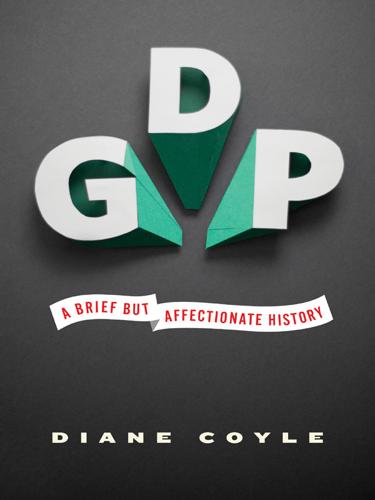
GDP: A Brief but Affectionate History
by
Diane Coyle
Published 23 Feb 2014
GDP GDP A BRIEF BUT AFFECTIONATE HISTORY DIANE COYLE PRINCETON UNIVERSITY PRESS PRINCETON AND OXFORD Copyright © 2014 by Diane Coyle Requests for permission to reproduce material from this work should be sent to Permissions, Princeton University Press Published by Princeton University Press, 41 William Street, Princeton, New Jersey 08540 In the United Kingdom: Princeton University Press, 6 Oxford Street, Woodstock, Oxfordshire OX20 1TW press.princeton.edu Jacket typography by Jerome Corgier/Marlena Agency. Jacket design by Kathleen Lynch/Black Kat Design. All Rights Reserved Library of Congress Cataloging-in-Publication Data Coyle, Diane.
…
All Rights Reserved Library of Congress Cataloging-in-Publication Data Coyle, Diane. GDP : a brief but affectionate history / Diane Coyle. pages cm. Includes bibliographical references and index. ISBN 978-0-691-15679-8 (hardcover : alk. paper) 1. Gross domestic product—History. 2. Economic history. 3. Economics—History. 4. Econometrics—History. I. Title. HC79.I5C725 2014 339.3′109—dc23 2013022478 British Library Cataloging-in-Publication Data is available This book has been composed in Minion Pro Printed on acid-free paper. ∞ Printed in the United States of America 1 3 5 7 9 10 8 6 4 2 CONTENTS Introduction 1 ONE From the Eighteenth Century to the 1930s: War and Depression 7 TWO 1945 to 1975: The Golden Age 41 THREE The Legacy of the 1970s: A Crisis of Capitalism 59 FOUR 1995 to 2005: The New Paradigm 77 FIVE Our Times: The Great Crash 93 SIX The Future: Twenty-first-Century GDP 119 Acknowledgments 141 Notes 143 Index 153 GDP Introduction “In Greece, statistics is a combat sport.”
…
Nordhaus, “The Progress of Computing,” Department of Economics, Yale University, August 2001. 13. William J. Baumol, The Free-Market Innovation Machine (Princeton, NJ: Princeton University Press, 2002). 14. Mark Bils and Peter J. Klenow, “The Acceleration in Variety Growth,” American Economic Review 91, no. 2 (2001): 274–280. 15. Diane Coyle, The Weightless World (Oxford: Capstone, 1996). CHAPTER 5: OUR TIMES: THE GREAT CRASH 1. James Glassman and Kevin Hassett, Dow 36,000 (New York: Three Rivers Press, 1999). 2. Robert Shiller, Irrational Exuberance (Princeton, NJ: Princeton University Press, 2000). 3. See John Kay, Obliquity (London: Profile Books, 2010). 4.
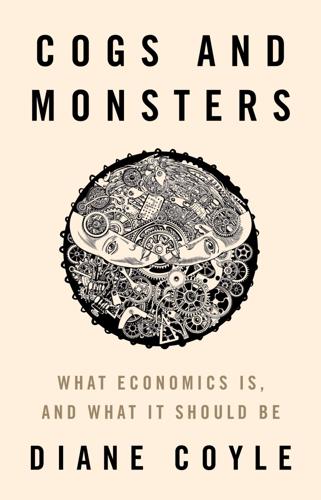
Cogs and Monsters: What Economics Is, and What It Should Be
by
Diane Coyle
Published 11 Oct 2021
These are the issues at the heart of my current academic research at the University of Cambridge’s Bennett Institute but informed of course by my interests and experience of the policy world over many years—in fact, over almost a quarter of a century. 1. https://www2.deloitte.com/global/en/pages/about-deloitte/articles/millennialsurvey.html. 2. These chapters use material from a lecture at the Oxford Martin School in June 2019, https://www.oxfordmartin.ox.ac.uk/events/changing-technology-changing-economics-with-prof-diane-coyle/ and at Nottingham Trent University in February 2020, https://www.ntu.ac.uk/about-us/events/events/2020/02/professor-diane-coyle-cbe. 5 Changing Technology, Changing Economics My first book on the digital economy was published almost a quarter of a century ago (Coyle 1997). Engrossed in the research and writing in the year or so prior to its publication, I enthused about the revolutionary prospects of the internet to a very distinguished economist.
…
COGS AND MONSTERS Cogs and Monsters What Economics Is, and What It Should Be Diane Coyle PRINCETON UNIVERSITY PRESS PRINCETON AND OXFORD Copyright © 2021 by Princeton University Press Princeton University Press is committed to the protection of copyright and the intellectual property our authors entrust to us. Copyright promotes the progress and integrity of knowledge. Thank you for supporting free speech and the global exchange of ideas by purchasing an authorized edition of this book. If you wish to reproduce or distribute any part of it in any form, please obtain permission.
…
Requests for permission to reproduce material from this work should be sent to permissions@press.princeton.edu Published by Princeton University Press 41 William Street, Princeton, New Jersey 08540 6 Oxford Street, Woodstock, Oxfordshire OX20 1TR press.princeton.edu All Rights Reserved Library of Congress Cataloging-in-Publication Data Names: Coyle, Diane, author. Title: Cogs and monsters : what economics is, and what it should be / Diane Coyle. Description: Princeton : Princeton University Press, [2021] | Includes bibliographical references and index. Identifiers: LCCN 2021017044 (print) | LCCN 2021017045 (ebook) | ISBN 9780691210599 (hardcover ; alk. paper) | ISBN 9780691231037 (ebook) Subjects: LCSH: Electronic commerce—History—21st century. | Digital media—History—21st century. | Economics—History—21st century. | BISAC: BUSINESS & ECONOMICS / Economics / General | BUSINESS & ECONOMICS / Public Finance Classification: LCC HF5548.32 .C69 2021 (print) | LCC HF5548.32 (ebook) | DDC 330—dc23 LC record available at https://lccn.loc.gov/2021017044 LC ebook record available at https://lccn.loc.gov/2021017045 Version 1.0 British Library Cataloging-in-Publication Data is available Editorial: Hannah Paul, Josh Drake Production Editorial: Terri O’Prey Jacket/Cover Design: Karl Spurzem Production: Erin Suydam Publicity: James Schneider, Kate Farquhar-Thomson Jacket image by Ryger / Shutterstock Dedicated to the memory of Peter Sinclair, 1946–2020 CONTENTS Introduction: Economics Today and Tomorrow 1 1 The Public Responsibilities of the Economist 15 Intermission 83 2 The Economist as Outsider 87 Intermission 112 3 Homo Economicus, AIs, Rats and Humans 116 Intermission 131 4 Cogs and Monsters 135 Intermission 163 5 Changing Technology, Changing Economics 168 6 Twenty-First-Century Economic Policy 182 Afterword 211 Acknowledgements 217 References 221 Index 241 COGS AND MONSTERS Introduction ECONOMICS TODAY AND TOMORROW Economics comes in for plenty of criticism.
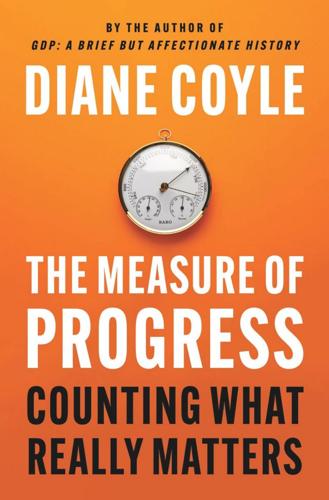
The Measure of Progress: Counting What Really Matters
by
Diane Coyle
Published 15 Apr 2025
Requests for permission to reproduce material from this work should be sent to permissions@press.princeton.edu Published by Princeton University Press 41 William Street, Princeton, New Jersey 08540 99 Banbury Road, Oxford OX2 6JX press.princeton.edu All Rights Reserved Library of Congress Cataloging-in-Publication Data Names: Coyle, Diane, author. Title: The measure of progress : counting what really matters / Diane Coyle. Description: Princeton : Princeton University Press, [2025] | Includes bibliographical references and index. Identifiers: LCCN 2024036081 (print) | LCCN 2024036082 (ebook) | ISBN 9780691179025 (hardback) | ISBN 9780691271286 (ebook) Subjects: LCSH: Econometrics. | Economic development. | Electronic commerce. | Information technology—Economic aspects. | BISAC: BUSINESS & ECONOMICS / Statistics | POLITICAL SCIENCE / Public Policy / Economic Policy Classification: LCC HB139 .C69 2025 (print) | LCC HB139 (ebook) | DDC 330.9—dc23/eng/20240823 LC record available at https://lccn.loc.gov/2024036081 LC ebook record available at https://lccn.loc.gov/2024036082 British Library Cataloging-in-Publication Data is available Editorial: Hannah Paul, Josh Drake Production Editorial: Elizabeth Byrd Jacket: Karl Spurzem Production: Erin Suydam Publicity: James Schneider (US), Kate Farquhar-Thomson (UK) Copyeditor: Christina Roth Jacket Credit: Pixel-Shot / Shutterstock This book has been composed in Arno Printed in the United States of America 10 9 8 7 6 5 4 3 2 1 c on t e n t s Figures and Tables vii Introduction 1 1 “Political Arithmetick” 9 2 Productivity without Products 34 3 Dematerialisation 72 4 (Dis)intermediation 99 5 Free 126 6 Borders 154 7 Value 178 8 Wealth 205 9 A New Framework?
…
I had no idea forty years ago as we played softball and ate hamburgers at the picnic that his work, along with that of Professor Dale Jorgenson, another of my Harvard econometrics lecturers, would be so foundational for my own f uture research. Not only was 9 10 Ch a p t er On e image 1.1. Harvard Economics Department summer picnic, 1982. © Diane Coyle. I more interested then in macroeconomics, but I was also terrified by the plunge into advanced econometrics with such brilliant professors after my non-technical Oxford Philosophy, Politics, and Economics (PPE) degree. (Indeed, terror was the prevailing emotion of my first year in the United States, down to the smallest t hings.
…
Here I am holding the copy in Chetham’s Library in Manchester that was read by Karl Marx and Friedrich Engels when they worked there in the summer of 1845, as they drafted what subsequently became The Communist Manifesto (1848). “P o l i t i c a l A r i t h m e t i c k ” 23 image 1.2. Holding a copy of William Petty’s Political Arithmetick (1690) at Chetham’s Library, Manchester. © Diane Coyle. Petty’s ambition was to m easure the prosperity of the United Kingdom at a time when the prospect of war with France made an estimate of potential tax revenues timely. He introduced the concept of national income and wealth and saw land and l abour, not gold, as the true source of the country’s prosperity.
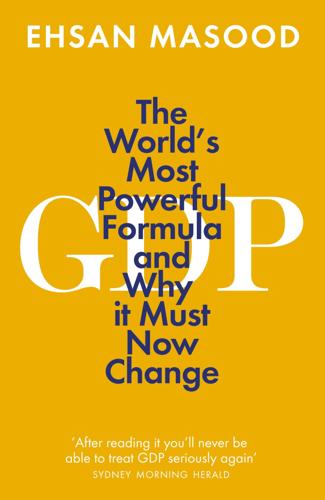
GDP: The World’s Most Powerful Formula and Why It Must Now Change
by
Ehsan Masood
Published 4 Mar 2021
Praise for the first edition “If you ever thought that economic policy could never make for gripping drama, try reading this book.” — Khurram Husain, Dawn “Masood covers decades of challenges to GDP conventions that make for a fascinating institutional and human story.” — Diane Coyle, Nature “Masood’s highly readable book is a useful reminder of what GDP is and what it isn’t.” — N. Gregory Mankiw, Science “Ehsan Masood unveils the genesis of GDP and how it shaped the modern economic paradigm. It comes at a time when a growing number of people are questioning this flawed metric.” — Down to Earth “Fascinating.
…
Researchers increasingly are questioning whether GDP is fit for purpose: if the world is at risk of ecological grief, why are we still following its formula, they rightly ask. In The Value of Everything, Mariana Mazzucato of University College London illustrates how GDP incentivizes those economic sectors that will push the index ever higher, regardless of whether they are causing planetary harm, or widening inequality. Meanwhile, Diane Coyle of the University of Cambridge and Benjamin Mitra-Kahn of Australia’s Intellectual Property Office have a two-step proposal. Firstly, to amend GDP by incorporating what it currently undervalues5 and then to move away from using GDP and instead valuing different kinds of “capital,” including human capital and natural capital as well as financial capital.6 A joint US–China team of researchers—Zhiyun Ouyang of the Chinese Academy of Sciences, Gretchen Daily of Stanford University, and Jack Liu of Michigan State University—have been involved in implementing a concept they call Gross Ecosystem Product,7 in which the value of the natural world is quantified in dollars and cents, so that the world knows what it is losing each time something like a forest or a wetland is cleared to make way for industrial activity.
…
Mustafa had come back to Pakistan after a spell studying and teaching in the United States, determined to make a difference in an otherwise lackluster education system. His college is still going strong. 2. In GDP: A Brief but Affectionate History (Princeton, NJ: Princeton University Press, 2013), Diane Coyle, professor of economics at the University of Manchester, says that GDP can be measured in three ways. The first is by adding up everything that an economy produces. The second is by adding together spending (or expenditures). The third method is to calculate incomes. Offices for national statistics in most countries will report on the results of all three methods.
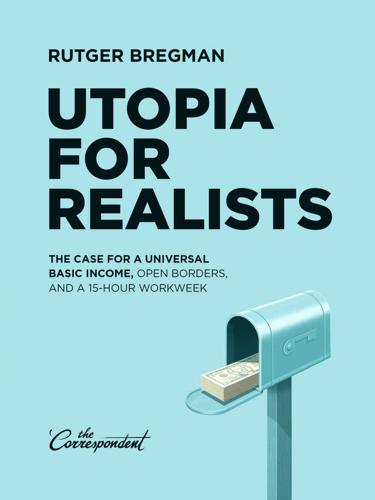
Utopia for Realists: The Case for a Universal Basic Income, Open Borders, and a 15-Hour Workweek
by
Rutger Bregman
Published 13 Sep 2014
“A wave of euphoria swept over Italians,” reported The New York Times, “after economists recalibrated their statistics taking into account for the first time the country’s formidable underground economy of tax evaders and illegal workers.”4 And that’s to say nothing of all the unpaid labor that doesn’t even qualify as part of the black market, from volunteering to child care to cooking, which together represents more than half of all our work. Of course, we can hire cleaners or nannies to do some of these chores, in which case they count toward the GDP, but we still do most ourselves. Adding all this unpaid work would expand the economy by anywhere from 37% (in Hungary) to 74% (in the UK).5 However, as the economist Diane Coyle notes, “generally official statistical agencies have never bothered – perhaps because it has been carried out mainly by women.”6 While we’re on the subject, only Denmark has ever attempted to quantify the value of breastfeeding in its GDP. And it’s no paltry sum: In the U.S., the potential contribution of breast milk has been estimated at an incredible $110 billion a year7 – about the size of China’s military budget.8 The GDP also does a poor job of calculating advances in knowledge.
…
David Rotman, “How Technology Is Destroying Jobs,” MIT Technology Review (June 12, 2013). http://www.technologyreview.com/featuredstory/515926/how-technology-is-destroying-jobs 22. Quoted in: Brynjolfsson and McAfee, The Second Machine Age, p. 27. 23. Ian Morris, Why The West Rules – For Now (2010), p. 495. 24. Morris, Why The West Rules, p. 497. 25. Diane Coyle, GDP. A Brief but Affectionate History (2014), p. 79. 26. Frank Levy and Richard Murnane, The New Division of Labor (2004). 27. There are indications that even jobs for the highly-skilled have come under pressure since 2000, leading them to snap up the less-skilled jobs. Increasingly, employees are overqualified for their jobs.
…
Merijn Knibbe, “De bestedingsgevolgen van de watersnoodramp: een succesvolle ‘Keynesiaanse’ schok,” Lux et Veritas (April 1, 2013). http://www.luxetveritas.nl/blog/?p=3006 3. Frédéric Bastiat, “Ce qu’on voit et ce qu’on ne voit pas” (1850). http://bastiat.org/en/twisatwins.html 4. Quoted in: Diane Coyle, GDP. A Brief but Affectionate History (2014) p. 106. 5. OECD (2011), “Cooking and Caring, Building and Repairing: Unpaid Work around the World,” Society at a Glance 2011, p. 25. http://www.oecd-ilibrary.org/social-issues-migration-health/society-at-a-glance-2011/cooking-and-caring-building-and-repairing_soc_glance-2011-3-en Also see: Coyle, GDP, p. 109. 6.
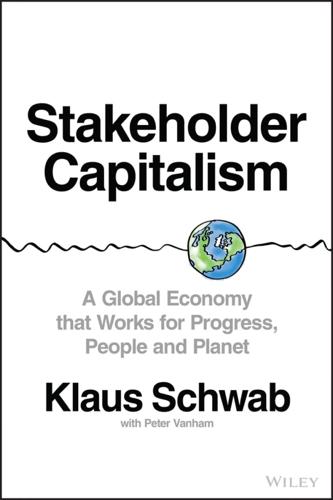
Stakeholder Capitalism: A Global Economy That Works for Progress, People and Planet
by
Klaus Schwab
Published 7 Jan 2021
In 1934, long before the Bretton Woods Agreement, Kuznets warned US Congress not to focus too narrowly on GNP/GDP: “The welfare of a nation can scarcely be inferred from a measure of national income,” he said.6 In this he was right. GDP tells us about consumption, but it does not tell us about well-being. It tells us about production but not pollution or the resource use. It tells us about government expenditure and private investments but not about the quality of life. Oxford economist Diane Coyle told us in an August 2019 interview7 that, in reality, GDP was “a war-time metric.” It tells you what your economy can produce when you're in war, but it does not tell you how you can make people happy when you're at peace. Despite the warning, no one listened. Policymakers and central banks did everything they could to prop up GDP growth.
…
The Nobel Prize, “Simon Kuznets Biographical,” 1971, https://www.nobelprize.org/prizes/economic-sciences/1971/kuznets/biographical/. 4 “GDP: A brief history,” Elizabeth Dickinson, Foreign Policy, January 2011, https://foreignpolicy.com/2011/01/03/gdp-a-brief-history/. 5 Ibidem. 6 “Beyond GDP: Economists Search for New Definition of Well-Being,” Der Spiegel, September 2009, https://www.spiegel.de/international/business/beyond-gdp-economists-search-for-new-definition-of-well-being-a-650532.html. 7 Phone interview with Diane Coyle by Peter Vanham, August 18, 2019. 8 Measured in constant 2010 US dollars. 9 World Bank, GDP Growth (annual %), 1961–2018, https://data.worldbank.org/indicator/NY.GDP.MKTP.KD.ZG. 10 “What's a Global Recession,” Bob Davis, The Wall Street Journal, April 2009, https://blogs.wsj.com/economics/2009/04/22/whats-a-global-recession/. 11 United States Census Bureau, International Data Base, September 2018, https://www.census.gov/data-tools/demo/idb/informationGateway.php. 12 “World Economic Outlook,” International Monetary Fund, Updated July 2019, https://www.imf.org/en/Publications/WEO/Issues/2019/07/18/WEOupdateJuly2019. 13 “World Economic Outlook,” International Monetary Fund, April 2019, Appendix A https://www.imf.org/~/media/Files/Publications/WEO/2019/April/English/text.ashx?
…
Because this balance sheet would also need to include human capital, we could incorporate all of the relevant elements in one composite scorecard.30 And a third, concrete option is to include the Climate Action Tracker in the dashboard of governments, as it shows each country's progress toward meeting its national commitments under the Paris agreement.”31 Some of these proposals are developed by the Wealth Project, a group consisting of economists including Diane Coyle and Mariana Mazzucato,32 who have long expressed their concern of the dominance of GDP. Companies, too, should expand their horizon beyond the profit-and-loss statement—and they are increasingly willing to do so. Ahead of the 50th Annual Meeting in Davos, I presented companies with a “Davos Manifesto 2020,” which describes “The Universal Purpose of a Company in the Fourth Industrial Revolution.”33 The purpose of a company is to engage all its stakeholders in shared and sustained value creation.
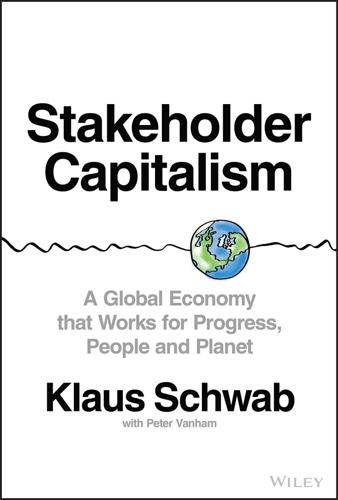
Stakeholder Capitalism: A Global Economy That Works for Progress, People and Planet
by
Klaus Schwab
and
Peter Vanham
Published 27 Jan 2021
In 1934, long before the Bretton Woods Agreement, Kuznets warned US Congress not to focus too narrowly on GNP/GDP: “The welfare of a nation can scarcely be inferred from a measure of national income,” he said.6 In this he was right. GDP tells us about consumption, but it does not tell us about well-being. It tells us about production but not pollution or the resource use. It tells us about government expenditure and private investments but not about the quality of life. Oxford economist Diane Coyle told us in an August 2019 interview7 that, in reality, GDP was “a war-time metric.” It tells you what your economy can produce when you're in war, but it does not tell you how you can make people happy when you're at peace. Despite the warning, no one listened. Policymakers and central banks did everything they could to prop up GDP growth.
…
The Nobel Prize, “Simon Kuznets Biographical,” 1971, https://www.nobelprize.org/prizes/economic-sciences/1971/kuznets/biographical/. 4 “GDP: A brief history,” Elizabeth Dickinson, Foreign Policy, January 2011, https://foreignpolicy.com/2011/01/03/gdp-a-brief-history/. 5 Ibidem. 6 “Beyond GDP: Economists Search for New Definition of Well-Being,” Der Spiegel, September 2009, https://www.spiegel.de/international/business/beyond-gdp-economists-search-for-new-definition-of-well-being-a-650532.html. 7 Phone interview with Diane Coyle by Peter Vanham, August 18, 2019. 8 Measured in constant 2010 US dollars. 9 World Bank, GDP Growth (annual %), 1961–2018, https://data.worldbank.org/indicator/NY.GDP.MKTP.KD.ZG. 10 “What's a Global Recession,” Bob Davis, The Wall Street Journal, April 2009, https://blogs.wsj.com/economics/2009/04/22/whats-a-global-recession/. 11 United States Census Bureau, International Data Base, September 2018, https://www.census.gov/data-tools/demo/idb/informationGateway.php. 12 “World Economic Outlook,” International Monetary Fund, Updated July 2019, https://www.imf.org/en/Publications/WEO/Issues/2019/07/18/WEOupdateJuly2019. 13 “World Economic Outlook,” International Monetary Fund, April 2019, Appendix A https://www.imf.org/~/media/Files/Publications/WEO/2019/April/English/text.ashx?
…
Because this balance sheet would also need to include human capital, we could incorporate all of the relevant elements in one composite scorecard.30 And a third, concrete option is to include the Climate Action Tracker in the dashboard of governments, as it shows each country's progress toward meeting its national commitments under the Paris agreement.”31 Some of these proposals are developed by the Wealth Project, a group consisting of economists including Diane Coyle and Mariana Mazzucato,32 who have long expressed their concern of the dominance of GDP. Companies, too, should expand their horizon beyond the profit-and-loss statement—and they are increasingly willing to do so. Ahead of the 50th Annual Meeting in Davos, I presented companies with a “Davos Manifesto 2020,” which describes “The Universal Purpose of a Company in the Fourth Industrial Revolution.”33 The purpose of a company is to engage all its stakeholders in shared and sustained value creation.
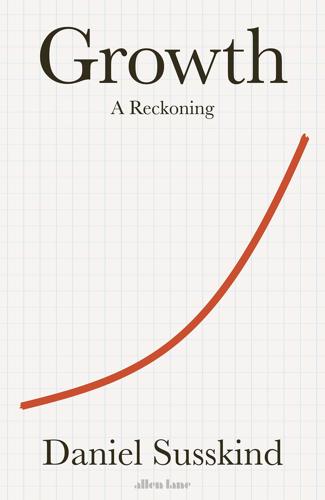
Growth: A Reckoning
by
Daniel Susskind
Published 16 Apr 2024
(London: Allen Lane, 2020). 45 Feldstein, ‘Underestimating’, p. 145. 46 Thomas Blanchet, Emmanuel Saez and Gabriel Zucman, ‘Real-Time Inequality’, NBER Working Paper No. 30229 (2022); Dennis Fixler, Marina Gindelsky and David Johnson, ‘Measuring Inequality in the National Accounts’, BEA Working Paper Series WP2020–3, December 2020. 47 For pressure, see the discussion of the SNA review here: Paul Allin, Diane Coyle and Tim Jackson, ‘Beyond GDP: Changing How We Measure Progress is Key to Tackling a World in Crisis – Three Leading Experts’, The Conversation, 18 August 2022. For resistance, see page 13 of SNA, System of National Accounts 2008 (New York, 2009). 48 Gilbert, quoted in Moshe Syrquin, ‘A Review Essay on GDP: A Brief but Affectionate History by Diane Coyle’, Journal of Economic Literature, 54:2 (2016), 573–88. 49 John Maynard Keynes and Erwin Rothbarth, ‘The Income and Fiscal Potential of Great Britain’, Economic Journal, 49:196 (1939).
…
The Priority 1 David Levy and Sandra Peart, ‘Soviet Growth & American Textbooks’ (2009): dx.doi.org/10.2139/ssrn.1517983. 2 www.defense.gov/News/Feature-Stories/story/Article/2128446/during-wwii-industries-transitioned-from-peacetime-to-wartime-production/; www.pbs.org/kenburns/the-war/war-production/. 3 The difference between GDP and GNP is a technical one: ‘GDP counts all the economic output generated within the nation’s boundary. GNP counts all the economic output generated by national entities, some of it occurring overseas’, Diane Coyle, GDP: A Brief but Affectionate History (London: Princeton University Press, 2014), p. 25. 4 ‘For the most part, our debates about economic policy are about economic growth’, Michael Sandel, Democracy’s Discontent (Cambridge, MA: Belknap Press, updated edition, 2022), pp. 8–9; ‘chief goal of economic policy’ Robert Skidelsky and Edward Skidelsky, How Much is Enough?
…
Some of them have sent us letters, including Paul Volcker, Laura Tyson, and Bob Rubin’, ‘Press Conference Announcing the Commerce Department’s Achievement of the Century’, Washington, DC, 7 December 1999, Survey of Current Business, 80: 1 (January 2000), 10–11, https://fraser.stlouisfed.org/title/survey-current-business-46/january-2000-9958/press-conference-announcing-commerce-departments-achievement-century-357955. 7 Moshe Syrquin, ‘A Review Essay on GDP: A Brief but Affectionate History by Diane Coyle’, Journal of Economic Literature, 54:2 (2016), 573–88. 8 H. W. Arndt, The Rise and Fall of Economic Growth: A Study in Contemporary Thought (Melbourne: Longman Cheshire, 1978). 9 See Mauro Boianovsky, ‘Divergence and Convergence: Paul Samuelson on Economic Development’, CHOPE Working Paper No. 2019–07 (2019).
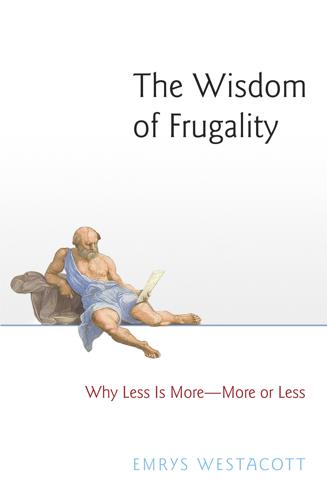
The Wisdom of Frugality: Why Less Is More - More or Less
by
Emrys Westacott
Published 14 Apr 2016
But it was with the emergence of dynamic market economies (growing rapidly on the basis of an increased population), global trade, modern banking, and industrialization that the tension between the professed moral values of Christianity and the economic needs of society became seriously stretched. Today, the belief that economic growth is a good thing is a basic assumption shared by the great majority of economists, political theorists, and politicians. As economist Diane Coyle remarks, “virtually every society in the modern world has come to be focused on the achievement of economic growth.”10 This is what most people everywhere seem to want, and no mainstream politician, whether democratically elected or not, would dream of opposing this goal. Since the end of the Second World War, the single most important statistic used for measuring economic growth has been a country’s gross domestic product (GDP), which is the monetary value of all the finished goods and services produced within the country over a specified period of time.
…
Yet in spite of all these criticisms, reservations, and alternative indexes, GDP remains important for economists and policy makers because it is a single number that, even if it oversimplifies matters, provides some sort of basic unit with which to make comparisons between countries and over time. And the assumption that there is some correlation between GDP and general well-being isn’t fanciful; countries with the highest GDP per capita typically rank high on other positive indexes, while those with relatively low GDP per capita typically don’t. This is Diane Coyle’s view: Economic growth contributes to happiness, and GDP growth should remain a policy target. . . . There’s no doubt that in a number of ways GDP is a flawed statistic as a measure of welfare. But any replacement would be flawed too, not to mention much harder for many countries to collect and measure; at least with the familiar GDP statistics we know what we’re getting.15 The argument about the usefulness of GDP, or per capita GDP, as an indicator of individual or social well-being is really a technical debate within a larger philosophical discussion about values and goals.
…
People in wealthy countries (those with a relatively high per capita income) are not on the whole happier than people in less wealthy (but not impoverished) countries. And although per capita income in the United States rose steadily over three decades following World War II, individuals in the 1970s did not report being any happier than individuals in the 1940s.16 Naturally, these claims have been disputed. Diane Coyle, for instance, writes: “The new conventional wisdom about happiness and growth is mistaken. Growth does make us happier, easily seen perhaps as the mirror of the unhappiness caused by economic recession.”17 But Easterlin and others reject this argument. They agree that in the short term, economic upturns or downturns produce corresponding swings in the levels of reported happiness.

The Hidden Half: How the World Conceals Its Secrets
by
Michael Blastland
Published 3 Apr 2019
Praise for The Hidden Half ‘Brilliant. Blastland provides an explanation of the need for humility in the face of the inevitable limits to knowledge.’ Diane Coyle – Bennett Professor of Public Policy, Cambridge University ‘Fascinating... As John Wooden said, it’s what you learn after you know it all that counts.’ Andrew Gelman – author of Red State, Blue State, Rich State, Poor State ‘Beautifully written and often very funny.’ Dame Frances Cairncross – Chair, Executive Committee of the Institute for Fiscal Studies ‘Packed with fascinating examples of our shaky understanding of ourselves and the world.’
…
If the detailed, small pictures of people’s personal lives aren’t consistent with the big picture drawn by the state, will they trust what the state tells them? Or will they reject the institutions that proclaim it and say instead: ‘I’m not like that; my family is not like that.’ The big picture falls into disrepute: ‘That’s your bloody GDP. . .’ Is Brexit another consequence of what happens when we overlook irregularity? The economist Diane Coyle says the variation between places was ‘hidden from public debate because regional and social inequalities tend to be obscured by the headline growth in GDP. In the UK, there were not even any up-to-date regional GDP figures available ahead of the Brexit referendum; they are only now starting to be published.’15 The Bank of England and the Office for National Statistics have begun to worry about what some call ‘granularity’ – how the right-here-right-now is missed by aggregated data – and to explore ways of showing that the economic story is not one story but many.
…
Their words, ideas and influence permeate the book. I hope I’ve done them justice and caused no embarrassment. There are many more whose work I’ve drawn on with interest, respect and pleasure: Nick Chater, Glenn Begley, Wendy Johnson, Mervyn King, John Laub and Robert Sampson, Tom Gash, Dorothy Bishop, Diane Coyle, Tim Harford, Stephen Senn, Andrew Gelman, Angus Deaton, Paul Johnson, Orazio Attanasio, Chris Dillow, Raymond Hubbard, Andy Haldane, Marcus Munafò, Nessa Carey, Helen Pearson, Philip Ball, Onora O’Neill, Judith Rich Harris, Ray Pawson, Noah Smith, to name a few. Thanks to still more who have educated me – up to my limited point – in subjects such as chaos theory, causality, research design, as well as specific ideas in economics, policy-making, education, international development, and so on; to various groups to whom I’ve presented at conferences and elsewhere who answered back.
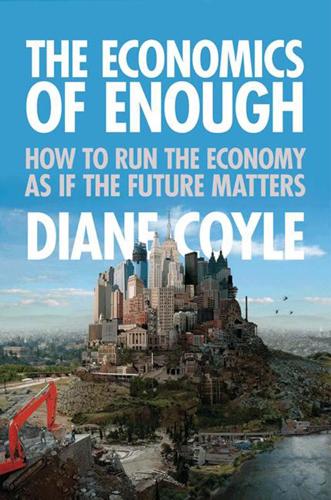
The Economics of Enough: How to Run the Economy as if the Future Matters
by
Diane Coyle
Published 21 Feb 2011
The Economics of Enough THE ECONOMICS OF ENOUGH HOW TO RUN THE ECONOMY AS IF THE FUTURE MATTERS DIANE COYLE PRINCETON UNIVERSITY PRESS PRINCETON AND OXFORD Copyright © 2011 by Diane Coyle Requests for permission to reproduce material from this work should be sent to Permissions, Princeton University Press Published by Princeton University Press, 41 William Street, Princeton, New Jersey 08540 In the United Kingdom: Princeton University Press, 6 Oxford Street, Woodstock, Oxfordshire OX20 1TW press.princeton.edu Jacket art: Julee Holcombe, Babel Revisited, copyright © 2004.
…
The Economics of Enough THE ECONOMICS OF ENOUGH HOW TO RUN THE ECONOMY AS IF THE FUTURE MATTERS DIANE COYLE PRINCETON UNIVERSITY PRESS PRINCETON AND OXFORD Copyright © 2011 by Diane Coyle Requests for permission to reproduce material from this work should be sent to Permissions, Princeton University Press Published by Princeton University Press, 41 William Street, Princeton, New Jersey 08540 In the United Kingdom: Princeton University Press, 6 Oxford Street, Woodstock, Oxfordshire OX20 1TW press.princeton.edu Jacket art: Julee Holcombe, Babel Revisited, copyright © 2004. All Rights Reserved Library of Congress Cataloging-in-Publication Data Coyle, Diane. The economics of enough : how to run the economy as if the future matters / Diane Coyle. p. cm. Includes bibliographical references and index. ISBN 978-0-691-14518-1 (hardcover : alk. paper) 1. Economic policy. 2. Values. 3. Happiness. I. Title. HD87.C69 2011 330—dc22 2010041654 British Library Cataloging-in-Publication Data is available This book has been composed in Sabon and Futura Printed on acid-free paper. ∞ Printed in the United States of America 10 9 8 7 6 5 4 3 2 1 CONTENTS Overview PART ONE: CHALLENGES ONE Happiness TWO Nature THREE Posterity FOUR Fairness FIVE Trust PART TWO: OBSTACLES SIX Measurement SEVEN Values EIGHT Institutions PART THREE: MANIFESTO NINE The Manifesto of Enough Acknowledgments Notes References Illustration Credits Index The Economics of Enough OVERVIEW In mid-september 2007 my sister phoned me to ask whether she should withdraw her savings from the bank and put the money somewhere else—and if so, where would be safe.
…
“Social Wants and Dismal Science: The Curious Case of the Climbing Costs of Health and Teaching.” Proceedings of the American Philosophical Society 137:4, pp. 419–40. Baumol, William, with William Bowen. 1966. Performing Arts: The Economic Dilemma. Cambridge, MA: MIT Press and the Twentieth Century Fund. Beck, Thorsten, Diane Coyle, Mathias Dewatripont, Xavier Freizas, and Paul Seabright. 2010. “Bailing out the Banks: Reconciling Stability and Competition.” London: Centre for Economic Policy Research. Becker, Sasha, Karolina Ekholm, and Marc-Andreas Muendler. 2009. “Offshoring and the Onshore Composition of Tasks and Skills.”
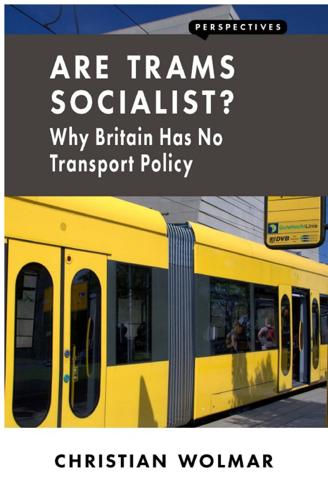
Are Trams Socialist?: Why Britain Has No Transport Policy
by
Christian Wolmar
Published 19 May 2016
Are Trams Socialist? Series editor: Diane Coyle The BRIC Road to Growth — Jim O’Neill Reinventing London — Bridget Rosewell Rediscovering Growth: After the Crisis — Andrew Sentance Why Fight Poverty? — Julia Unwin Identity Is The New Money — David Birch Housing: Where’s the Plan? — Kate Barker Bad Habits, Hard Choices: Using the Tax System to Make Us Healthier — David Fell A Better Politics: How Government Can Make Us Happier — Danny Dorling Are Trams Socialist? Why Britain Has No Transport Policy — Christian Wolmar Are Trams Socialist? Why Britain Has No Transport Policy Christian Wolmar Copyright © 2016 Christian Wolmar Published by London Publishing Partnership www.londonpublishingpartnership.co.uk Published in association with Enlightenment Economics www.enlightenmenteconomics.com All Rights Reserved ISBN: 978-1-907994-57-9 (epub) A catalogue record for this book is available from the British Library This book has been composed in Candara Copy-edited and typeset by T&T Productions Ltd, London www.tandtproductions.com Preface Gothenburg tram.
…
Why Britain Has No Transport Policy Christian Wolmar Copyright © 2016 Christian Wolmar Published by London Publishing Partnership www.londonpublishingpartnership.co.uk Published in association with Enlightenment Economics www.enlightenmenteconomics.com All Rights Reserved ISBN: 978-1-907994-57-9 (epub) A catalogue record for this book is available from the British Library This book has been composed in Candara Copy-edited and typeset by T&T Productions Ltd, London www.tandtproductions.com Preface Gothenburg tram. Photo by Diane Coyle. Transport was a bit of an afterthought in the creation of the UK’s system of governance. There was no government department responsible for all aspects of transport until the creation of the Ministry of Transport in the aftermath of World War I, and in its various successive incarnations the transport ministry has never been granted the kind of importance that such weighty matters as finance, defence or home affairs have been accorded.
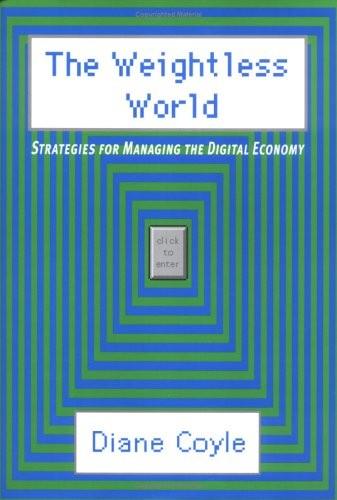
The Weightless World: Strategies for Managing the Digital Economy
by
Diane Coyle
Published 29 Oct 1998
Apart from any fair dealing for the purposes of research or private study, or criticism or review, as permitted under the relevant copyright, designs and patents acts, this publication may only be reproduced, stored or transmitted, in any form or by any means, with the prior permission in writing of the publishers. The Weightless World Strategies for Managing the Digital Economy Diane Coyle Copyright © Diane Coyle 1997 The right of Diane Coyle to be identified as the author of this work has been asserted in accordance with the Copyright, Designs and Patents Act 1988 First Published 1997 Capstone Publishing Limited Oxford Centre for Innovation Mill Street Oxford OX2 0JX United Kingdom All rights reserved. Except for the quotation of short passages for the purposes of criticism and review, no part of this publication may be reproduced, stored in a retrieval system, or transmitted, in any form or by any means, electronic, mechanical, photocopying, recording or otherwise, without the prior permission of the publisher.
…
Finally, I’d like to express heartfelt gratitude to those people at the Organisation for Economic Co-operation and Development who went out of their way to look up all sorts of figures and publications for me, in a true spirit of wanting to further our understanding of the world. Responsibility for the finished product, with all its infelicities, warts and omissions, is mine. Diane Coyle June 1997 Chapter One. The Weightless World A single imported greetings card with a microchip that plays Happy Birthday when the card is opened contains more computer power than existed on the planet 50 years ago. It weighs a gram or so. This might seem an odd choice of example to illustrate economic progress, but weightlessness is the key to understanding the new industrial revolution we are living through.
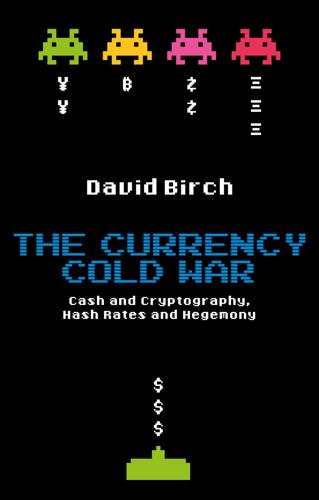
The Currency Cold War: Cash and Cryptography, Hash Rates and Hegemony
by
David G. W. Birch
Published 14 Apr 2020
The Currency Cold War Series editor: Diane Coyle The BRIC Road to Growth — Jim O’Neill Reinventing London — Bridget Rosewell Rediscovering Growth: After the Crisis — Andrew Sentance Why Fight Poverty? — Julia Unwin Identity Is The New Money — David Birch Housing: Where’s the Plan? — Kate Barker Bad Habits, Hard Choices: Using the Tax System to Make Us Healthier — David Fell A Better Politics: How Government Can Make Us Happier — Danny Dorling Are Trams Socialist? Why Britain Has No Transport Policy — Christian Wolmar Travel Fast or Smart?
…
Birch Published by London Publishing Partnership www.londonpublishingpartnership.co.uk Published in association with Enlightenment Economics www.enlightenmenteconomics.com All Rights Reserved ISBN: 978-1-913019-09-9 (epub) A catalogue record for this book is available from the British Library This book has been composed in Candara Copy-edited and typeset by T&T Productions Ltd, London www.tandtproductions.com Cover design by James Shannon www.jshannon.com Dedicated to the person who first encouraged me to write a book at all: Diane Coyle. It is because of her that this book went from concept to manuscript in a time I would not have thought possible a few years back! Contents Foreword by Michael J. Casey Preface Introduction Part 1 Digital Currency Chapter 1 What is digital currency? Chapter 2 Technology as catalyst Chapter 3 Anyone can make money Part 2 Drivers for change Chapter 4 What problem will digital currency fix?
…
6 However, there is also a good reason why smart observers do not dismiss it: ‘censorship-resistant’ implies an open, neutral platform that could be a driver of permissionless innovation. 7 John Cryan, while CEO of Deutsche Bank, was famously quoted in the Financial Times as saying that his bank would shift from employing people to act like robots to employing robots to act like people. 8 As I asked at Digital Jersey’s Annual Review in 2018, in an echo of Fred Schwed’s 1940s financial services classic … where are the customers’ bots? 9 AlphaGo Zero, which taught itself to play, has already beaten AlphaGo, which was taught to play by humans, by a hundred games to zero. You heard that right: zero. 10 As the economist Diane Coyle pointed out in a Financial Times article (published 26 January 2017), it may be that transparency is the key to making this work, which highlights at least one area where the technology of shared ledgers and machine learning – blockchains and bots – may come together. 11 At the time of writing, the trading of tokens has just overtaken the trading of cryptocurrency on the Ethereum blockchain. 12 They go on to say, and I strongly agree, that this means it is important to achieve a social consensus on how such smart money should be integrated into the existing financial system.
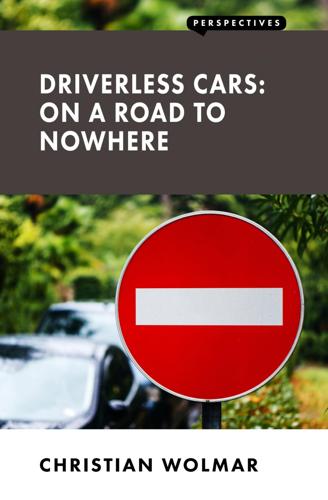
Driverless Cars: On a Road to Nowhere
by
Christian Wolmar
Published 18 Jan 2018
PERSPECTIVES DRIVERLESS CARS: ON A ROAD TO NOWHERE C H RIS TIA N WO L M A R Driverless Cars: On a Road to Nowhere PERSPECTIVES Series editor: Diane Coyle The BRIC Road to Growth — Jim O’Neill Reinventing London — Bridget Rosewell Rediscovering Growth: After the Crisis — Andrew Sentance Why Fight Poverty? — Julia Unwin Identity Is The New Money — David Birch Housing: Where’s the Plan? — Kate Barker Bad Habits, Hard Choices: Using the Tax System to Make Us Healthier — David Fell A Better Politics: How Government Can Make Us Happier — Danny Dorling Are Trams Socialist? Why Britain Has No Transport Policy — Christian Wolmar Travel Fast or Smart?
…
By Editor5807 (own work) [GNU Free Documentation License, Version 1.2 (https://commons.wikimedia. org/w iki/C ommons:GNU_Free_Documentation_License,_version _1.2)] via Wikimedia Commons. 120 PERSPECTIVES Centennial Scholar are at essays the Brookings Institution, and co-author of The Perspectives on big ideas by leading writers, each given Revolution free rein and a modest word limit to reframe an issue of Metropolitan great contemporary interest. Diane Coyle, Series Editor ‘This is just what the robot evangelists don’t want you to read: a rational, levelheaded, compelling yet cheerful analysis of why the driverless car‘s route to success is so uncertain. Wolmar has simmered the hype to reveal real-world motorindustry paranoia and tech-sector hubris, and he explains why autonomous cars probably aren’t coming to a street near you anything like as soon as you’ve been led to believe.’

Markets, State, and People: Economics for Public Policy
by
Diane Coyle
Published 14 Jan 2020
MARKETS, STATE, AND PEOPLE MARKETS, STATE, AND PEOPLE ECONOMICS FOR PUBLIC POLICY DIANE COYLE PRINCETON UNIVERSITY PRESS PRINCETON AND OXFORD Copyright © 2020 by Princeton University Press Published by Princeton University Press 41 William Street, Princeton, New Jersey 08540 6 Oxford Street, Woodstock, Oxfordshire OX20 1TR press.princeton.edu All Rights Reserved Names: Coyle, Diane, author. Title: Markets, state, and people : economics for public policy / Diane Coyle. Description: Princeton : Princeton University Press, [2020] | Includes index. Identifiers: LCCN 2019019274 | ISBN 9780691179261 (hardcover) Subjects: LCSH: Economic policy. | Economics.
…
Francis Spufford (2011), Red Plenty, Faber. (A novel comparing the planned economy USSR and the free market USA in the 1950s.) On Historical and Political Forces Daron Acemoglu and James Robinson (2013), “Economics versus Politics: Pitfalls of Policy Advice,” Journal of Economic Perspectives 27, no. 2: 173–192. Diane Coyle (2015), GDP: A Brief but Affectionate History, revised ed., Princeton University Press. Wayne Leighton and Edward Lopez (2012), Madmen, Intellectuals, and Academic Scribblers: The Economic Engine of Political Change, Stanford University Press, chapters 1–3. On Externalities and Public Goods Ronald Coase (1991), Nobel Prize lecture, “The Institutional Structure of Production,” http://www.nobelprize.org/nobel_prizes/economic-sciences/laureates/1991/coase-lecture.html.
…
,” speech, http://www.regulation.org.uk/library/2017-What_has_Competition_ever_Done_for_us.pdf. Maurice E. Stucke (2013), “Is Competition Always Good?,” Journal of Antitrust Enforcement 1, no. 1: 162–197, doi: 10.1093/jaenfo/jns008, http://antitrust.oxfordjournals.org/content/1/1/162.full. Digital Competition Diane Coyle (2019), “Practical Competition Policy Tools for Digital Platforms,” Antitrust Law Journal 82, no. 3. Digital Competition Expert Panel (2019), “Unlocking Digital Competition,” https://www.gov.uk/government/publications/unlocking-digital-competition-report-of-the-digital-competition-expert-panel.
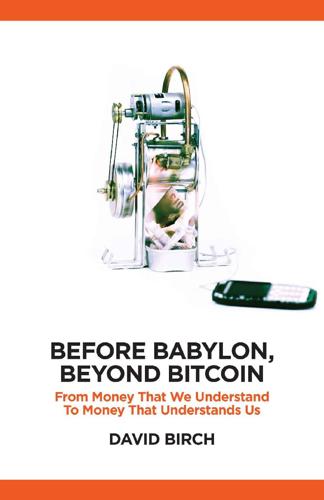
Before Babylon, Beyond Bitcoin: From Money That We Understand to Money That Understands Us (Perspectives)
by
David Birch
Published 14 Jun 2017
Anyway, to restore fair contributions, some years later EU statisticians revised their methodologies to treat the black economy equally in all EU countries and things like software and drug dealing and prostitution were added to the figures in 1991, which in turn boosted the UK economy significantly. Diane Coyle explores this statistical revision in her book GDP: A Brief but Affectionate History, saying that ‘the largely cash-based informal economy of moonlighting, avoiding taxes and regulations, but creating work and output, has been placed inside the production boundary’ (Coyle 2014). So it is measured, but the people in that economy are not contributing their fair share to the national piggy bank.
…
In this category, e-cash is really a symptom of fundamental change: as the developed economies have become information economies, the problem of trying to measure, assess and control those economies has sharpened. Economists already wonder about existing measures. Figures that may have understated actual growth and productivity gains over the past few years could have sent the wrong signals to both policy makers and financial markets. In what economist Diane Coyle called the ‘weightless economy’ (Coyle 1997a) the task of measuring and managing economic activity may well move beyond the bounds of what is possible through traditional structures, and electronic money could contribute to (but not create) a real problem for governments: the lack of intermediaries for reporting on monetary flows.
…
And if they cannot be accounted, how are they to be managed? Since the government cannot simply measure all the money flows in the economy and use that actual data instead of ancient statistical estimates that often need to be revised, it has, in essence, no idea what is going on. This was observed most famously, as Diane Coyle has noted, when Denis Healey went cap in hand to the IMF because Britain was in recession – only to discover, when the figures were later updated, that it hadn’t been. This led me to reflect on the old Robert Heinlein science fiction novel Beyond This Horizon, in which cash is extinct and all payments run through computers and all the computers are connected to the government computer so the government can twiddle the knobs and dials to keep the economy on course.
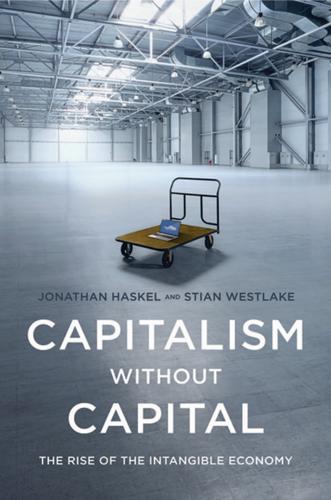
Capitalism Without Capital: The Rise of the Intangible Economy
by
Jonathan Haskel
and
Stian Westlake
Published 7 Nov 2017
A commission from Ryan Avent of the Economist gave us the idea of writing something for a wider audience. We are also grateful to the people who challenged us to think about the broader implications of intangibles for the economy and for society and who patiently commented on drafts. Particular thanks go to Diane Coyle, for her insightful advice and comments throughout the project, and to Alex Edmans, Fernando Galindo Rueda, Neil Lee, Mike Lynch, David Pitt Watson, and Giles Wilkes, who commented on particular chapters, and Simon Haskel, who read the text in its entirety. Other readers and discussants to whom we are very grateful include Hasan Bakhshi, Daniel Finkelstein, Tom Forth, John Kay, Juan Mateos Garcia, Ramana Nanda, Paul Nightingale, Robert Peston, and Bart van Ark.
…
Business gurus urged managers to think about how to thrive in a knowledge economy. Economists began to think about how research and development and the ideas that resulted from it might be incorporated into their models of economic growth, an economy parsimoniously encapsulated by the title of Diane Coyle’s book The Weightless World. Authors like Charles Leadbeater suggested we might soon be “living on thin air.” The bursting of the dot-com bubble in 2000 dampened some of the wilder claims about a new economy, but research continued among economists to understand what exactly was changing. It was in this context that a group of economists assembled in Washington in 2002 at a meeting of the Conference on Research in Income and Wealth to think about how exactly to measure the types of investment that people were making in what they were calling “the new economy.”
…
In the next chapter, we will look in more depth at how to measure intangible investment in the economy. 3 How to Measure Intangible Investment This chapter explains how intangible investment can be measured, and how economists worked it out. How Is Investment Measured and Why? The story of how economists and statisticians came to measure intangible investment is a late episode in a much bigger story: the invention of GDP and systems of national accounts.1 This story is engagingly told in Diane Coyle’s GDP: A Brief but Affectionate History and Ehsan Masood’s The Great Invention: The Story of GDP. One of the biggest conceptual challenges involved in the creation of GDP was deciding what to count. This was an old problem. Adam Smith, in The Wealth of Nations, puzzled over whether England was producing more than it did at the fall of the Roman Empire.
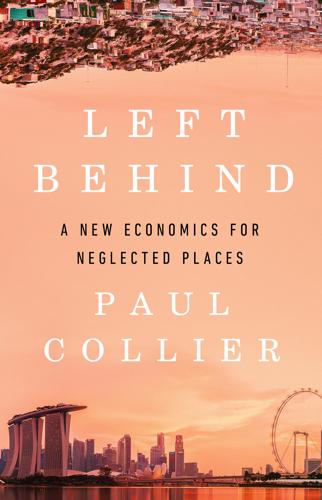
Left Behind
by
Paul Collier
Published 6 Aug 2024
xiii Revealingly, the primary difficulty that officials faced in providing this support was that, as with the Treasury, their criteria for estimating the public benefit were almost ludicrously inappropriate. Initially, the employment benefit generated by Bank North was restricted to the few managers and the other staff it would directly employ, thereby excluding the effects of its £500 million planned loans. xiv See A. Chua, Political Tribes: Group Instinct and the Fate of Nations (2018). xv Diane Coyle is a rare wise voice who argues with devasting logic that since Pareto efficiency is indifferent as to whether poor people end up losing from a policy that increases GDP for others, it is unethical to use it as a criterion. 3. Hidden Despair In the decades since 1990, the international economy has become more integrated – ‘globalization’ – yet people’s economic circumstances have become more varied and erratic.
…
Not only is Contributive Justice consistent with the evidence from evolutionary biology and social psychology, it also chimes with the practical politics of spiralling up. It tells us why, unless there are good moral reasons to the contrary, we should join others in striving for a better future for our community and society. As the Cambridge economist and public policy expert Diane Coyle expressed it, people need a ‘shared sense of direction and optimism’. That shared sense comes from the power of shared agency, the benefits of mutuality being the key intellectual advance. Agency and disadvantage A fundamental difference between Distributive and Contributive Justice is who has agency.
…
—Sir Angus Deaton, Nobel laureate, Economic Sciences “Reading the book left me with a sense of optimism and hope that those who get left behind need not stay that way.” —Ngozi Okonjo-Iweala, director general, World Trade Organization “A wide-ranging account of why societies have gone so badly wrong in the early twenty-first century by emphasizing individualism, and an ambitious—but essential—agenda for tackling some of the problems.” —Professor Diane Coyle, author of GDP “Drawing on a wide range of case studies, Collier shows that with appropriate support, left-behind places can spiral up. In the process, he draws on the latest research to show us what good states look like and how they operate. A manual for the future for all of us.” —Rebecca Henderson, John and Natty McArthur University Professor, Harvard University Notes Chapter 1 1 Moral worthiness depended only on the intended consequences of individual actions.
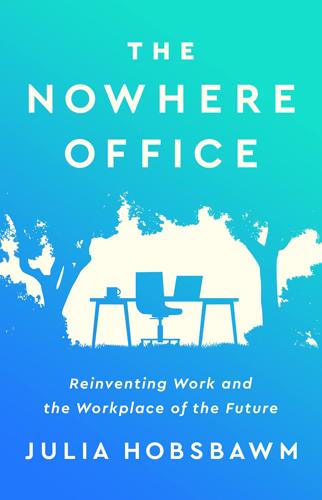
The Nowhere Office: Reinventing Work and the Workplace of the Future
by
Julia Hobsbawm
Published 11 Apr 2022
Expect organisations to publish their policies on flexible working which go beyond the formal legal ‘right to request’ and to state a suite of options ranging from the four-day week to Arup’s seven-day ‘Work Unbound’ to Fujitsu’s ‘Shift’ model.8 6. Pricing in Purpose I certainly agree with the economists Diane Coyle of the University of Cambridge and Leonard Nakamura of the Federal Reserve Bank of Philadelphia Research Department who believe that ‘a measure of welfare should become part of a system of accounts’.9 In practice this means that root and branch reform of the way organisations run needs to continue so that inequalities are addressed and the workforce can trust that there is a point to their time and expertise.
…
See ‘Arup Embraces Seven-Day Work Week With Flexible Hours’, Consultancy.uk, 21 May 2021, https://www.consultancy.uk/news/27991/arup-embraces-seven-day-work-week-with-flexible-hours; and Karen Thomson, ‘Work-Life Shift: Making Flexible Working the Norm’, Fujitsu UK, 12 February 2021, https://blog.uk.fujitsu.com/responsible-business/work-life-shift-making-flexible-working-the-norm/#.YYFtgp7P2Uk 9. Diane Coyle, ‘A Time-Based Approach to Measuring Economic Welfare’, Economic Statistics Centre of Excellence, 22 January 2019, https://www.escoe.ac.uk/a-time-based-approach-to-measuring-economic-welfare/ 10. See Glassdoor, a leader on insights into jobs and companies, https://www.glassdoor.com/about-us/ 11.
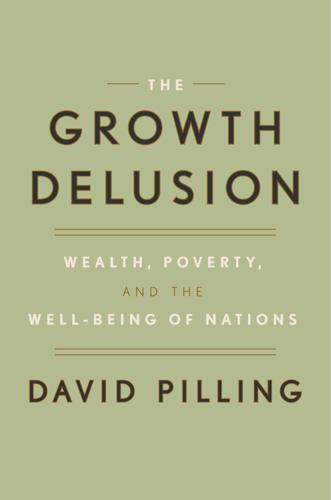
The Growth Delusion: Wealth, Poverty, and the Well-Being of Nations
by
David Pilling
Published 30 Jan 2018
It is just a clever way of measuring some of the stuff that we humans get up to. Growth was a great invention. Now get over it. NOTES THE CULT OF GROWTH 1. See Pankaj Mishra, Age of Anger, Farrar, Straus and Giroux, 2017; Ed Luce, The Retreat of Western Liberalism, Little, Brown, 2017. 2. Borrowed from Diane Coyle, GDP: A Brief but Affectionate History, Princeton University Press, 2014, p. 124. 3. I’ve always attributed this phrase to Bill Emmott, former editor of The Economist. Whether or not he invented it, he uses it frequently. 4. “Chinese Factory Worker Can’t Believe the Shit He Makes for Americans,” Onion, June 15, 2005: www.theonion.com. 5.
…
Liabilities, on the other hand, are the monies deposited with a bank, which one day it will have to give back. 15. Andrew Haldane, “The $100 Billion Question,” 2010: www.bankofengland.co.uk. 16. Haldane, Brennan, and Madouros, “What is the contribution of the financial sector,” p. 92. 17. Diane Coyle, GDP: A Brief but Affectionate History, Princeton University Press, p. 99. 18. Haldane, Brennan, and Madouros, “What is the contribution of the financial sector,” p. 88. 19. Coyle, GDP, p. 102. CHAPTER 5: THE INTERNET STOLE MY GDP 1. Sir Charles Bean, “Independent Review of UK Economic Statistics,” Cabinet Office, HM Treasury, March 2016. 2.
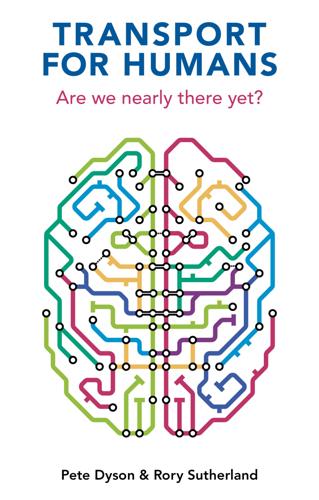
Transport for Humans: Are We Nearly There Yet?
by
Pete Dyson
and
Rory Sutherland
Published 15 Jan 2021
Transport for Humans Series editor: Diane Coyle The BRIC Road to Growth — Jim O’Neill Reinventing London — Bridget Rosewell Rediscovering Growth: After the Crisis — Andrew Sentance Why Fight Poverty? — Julia Unwin Identity Is The New Money — David Birch Housing: Where’s the Plan? — Kate Barker Bad Habits, Hard Choices: Using the Tax System to Make Us Healthier — David Fell A Better Politics: How Government Can Make Us Happier — Danny Dorling Are Trams Socialist? Why Britain Has No Transport Policy — Christian Wolmar Travel Fast or Smart?
…
We are inspired by the fact that travellers and transport operators have historically demonstrated a remarkable capacity to innovate and cooperate. We hope that what we are learning now, combined with the insights in this book, will make travel a little more human in future. Acknowledgements We are indebted to Diane Coyle for proposing that this book was even a possibility and for having the perseverance to reshape several drafts over its four-year development. Upon her recommendation, brilliant editing by Tim Philips has made the text more precise and much more enjoyable to read. We thank Richard Baggaley and Sam Clark, who have both gone above and beyond with their tenacity to bring the book into existence.
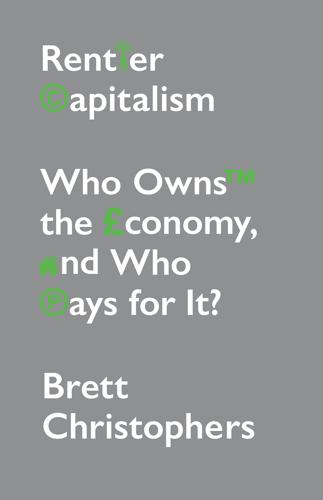
Rentier Capitalism: Who Owns the Economy, and Who Pays for It?
by
Brett Christophers
Published 17 Nov 2020
Naidu and his colleagues, in their paper on labour market power, forcefully make this general case, highlighting, among companies that seemingly ‘have achieved such powerful monopsonies that they should be broken up … platform-based firms that receive vast flows of valuable data services without any compensation (such as Facebook and Google)’.68 Diane Coyle makes the UK case, albeit more tentatively, flagging as a potential concern for policymakers ‘the theoretical scope for platforms to become monopsony buyers in the labour market. The discussion of their market dominance in the literature focuses on the product market side. However, it would also be possible for them to become dominant in certain geographic labour markets.’69 To be sure, the notion that the digital-platform space might be the locus of rapidly escalating inequalities between capital and labour clashes with the popular image of ‘tech bros’ setting up platform companies, taking them to IPO (initial public offering), and earning vast financial rewards in the process.
…
“The problem is that the regulator spends all its time talking to the company and its investors,” says [the academic David] Hall.’55 And there are certainly those who believe that, in the eternal interregnum preceding the promised emergence of competition, the UK’s privatized network industries have indeed to some extent captured their respective regulators. One of them is Diane Coyle, who has noted the fact that entire teams are employed by infrastructure companies to handle regulatory relations.56 Nevertheless, whether or not capture has taken place is almost beside the point if one is primarily interested, as we are here, in the substance of regulation – and, more importantly still, its effects.
…
An extraordinary range and wealth of key assets have been privatized, including most notably land and housing (Chapter 7), infrastructures for the provision of public utilities (Chapter 6) and contractual responsibility for carrying out tasks previously discharged by the public sector (Chapter 5); as the economist Diane Coyle has observed, ‘the belief the public sector should own as little as possible’ has become nothing less than an ‘article of faith’ among successive administrations in Whitehall, New Labour included.43 At the same time, the rights attached to the burgeoning stock of privately owned assets, from natural resource reserves (Chapter 2) to IP assets (Chapter 3), and from radio spectrum (Chapter 6) to rental housing (Chapter 7), have been widely strengthened, in the process changing the practical meaning and substance of ‘ownership’.
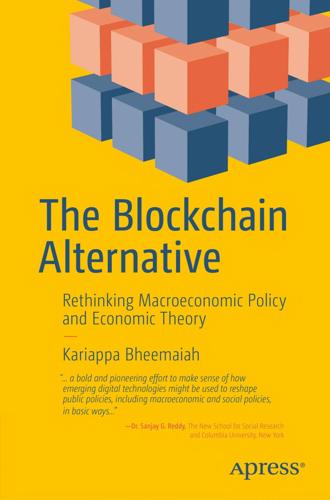
The Blockchain Alternative: Rethinking Macroeconomic Policy and Economic Theory
by
Kariappa Bheemaiah
Published 26 Feb 2017
Brain Arthur, Doyne Farmer, Andreas Antonopoulos, Satyajit Das, Joyce Appleby, Yanis Varoufakis, Patrick O’Sullivan, Nigel Allington, Mark Esposito, Sitabhra Sinha, Thomas Sowell, Niall Ferguson, Andy Stern, Alan Kirman, Neel Kashkari, Danny Dorling, David Graeber, Amir Sufi, Atif Mian, Vitalik Buterin, Andy Haldane, Gillian Tett, Martin Sandbu, Robert Reich, Kenneth Rogoff, Paul Beaudry, Michael Kumhof, Diane Coyle, Ben Dyson, Dirk Helbing, Guy Michaels, David Autor, Richard Gendal Brown, Tim Swanson, David Andolfatto, Paul Pfleiderer, Zoltan Pozsar, Frank Levy, Richard Murnane, César Hidalgo, and Robin Hanson, among others. An equal measure of thanks also needs to be given to all the academics and researchers whom I had the chance to meet via the Institute of New Economic Thinking.
…
Yet in recent times, its ability to appropriately represent the true productivity of a country is increasingly criticized. While writing a critique on this topic is beyond the scope of this book, readers are invited to look at other indicators such as the Social Progress Index and the OECD Better Life Index. Another excellent resource is Diane Coyle’s, GDP: A Brief but Affectionate History, which shows why this statistic was invented, how it has changed, what are its pros and cons and why it is inappropriate for a 21st century economy driven by innovation, services, and intangible goods. 22The concept of technological underemployment and unemployment has been explored in detail by Guy Standing in his very excellent book, The Precariat: The New Dangerous Class, (2011). 23Overt Money finance is the act of creating new money and giving it to people via spending or tax cuts. 24Tax expenditures: when the government spends revenue via the tax system by giving a deduction on taxable income.
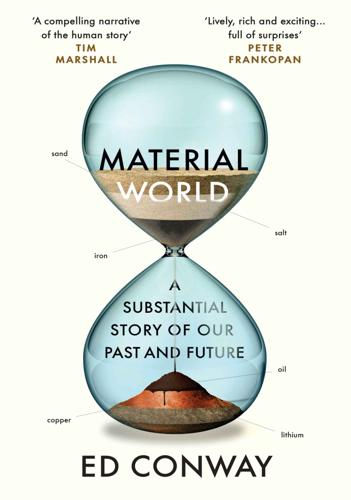
Material World: A Substantial Story of Our Past and Future
by
Ed Conway
Published 15 Jun 2023
Mills, ‘The Hard Math of Minerals’, Issues in Science and Technology , 27 January 2022, https://issues.org/environmental-economic-costs-minerals-solar-wind-batteries-mills/ ; copper data from Gait, ‘Copper and the Green Economy’; prediction about future copper demand from The Future of Copper: Will the looming supply gap short-circuit the energy transition? (IHS Market/S&P Global, 2022). 8 Smil, How the World Really Works . 9 Zoltan Pozsar, ‘War and Industrial Policy’, Credit Suisse, 24 August 2022. 10 Diane Coyle, GDP: A Brief but Affectionate History (Princeton University Press, 2015); Pozsar, ‘War and Industrial Policy’. 11 The typical Panamax container ship can carry just over 5,000 TEU (containers), which works out at roughly 70,000 tonnes, as compared with the English merchant fleet’s combined capacity of 68,000 tonnes.
…
It is, I hope, their story rather than mine – even if their names do not appear on the cover (or, for those who preferred to remain anonymous, here in the acknowledgements either). Those to whom I’m enormously grateful for sparing time to provide advice and ideas, and for patiently answering my stupid questions, include: Julian Allwood, Justin Baring, Tom Bide, Nigel Bouckley, Flo Bullough, Tom Butler, Diane Coyle, Django Davidson, Stefan Debruyne, Athene Donald, David Edgerton, Simon Evans, Andrew Fulton, Paul Gait, Ben Goldsmith, Ben Gordon, Sarah Gordon, Andy Haldane, Reiner Haus, Andrew Heald, Neil Hume, Michael Lodge, David Mapstone, Brian Menell, Chris Miller, Simon Moores, Bram Murton, Malcolm Penn, Jose Ignacio Perez, Simon Price, Andrew Rabeneck, Caspar Rawles, Matt Ridley, Vaclav Smil, Jonathan Spencer, Judy Stevenson, Ricky Tite, Frances Wall and Giles Wilkes.
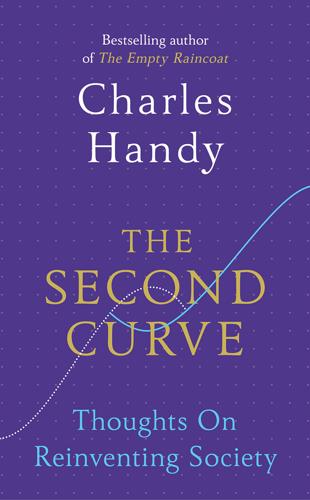
The Second Curve: Thoughts on Reinventing Society
by
Charles Handy
Published 12 Mar 2015
In truth we do not know how well our economy or our society is really growing at any given time, even in economic terms, let alone human well-being. A Second Curve badly needs a more satisfactory measure of a society’s growth. In her illuminating book GDP: A Brief but Affectionate History, the economist Diane Coyle suggests that policymakers should adopt a dashboard of different measures. Sadly, politicians and the public yearn for the simplicity of a single number and, says Coyle, GDP is the best we have. Unfortunately it is used in public debate as the only measure in common use to assess our progress as a society.
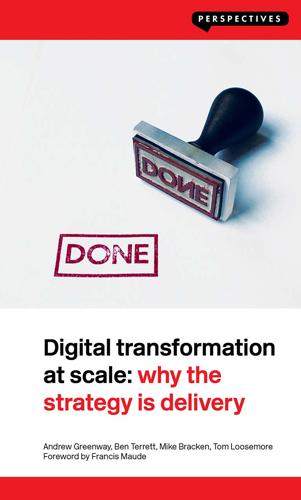
Digital Transformation at Scale: Why the Strategy Is Delivery
by
Andrew Greenway,Ben Terrett,Mike Bracken,Tom Loosemore
Published 18 Jun 2018
The rest of the world will then have to catch up. Acknowledgements A multidisciplinary team was needed to make this book happen. Emer Coleman, Russell Davies and Giles Turnbull provided us with wise advice on the words, and made sure that we annoyed fewer people unnecessarily. Diane Coyle was an excellent and patient editor (as well as being kind enough to ask us to write this book in the first place). Richard Baggaley, Jon Wainwright and Sam Clark helped us navigate the unfamiliar world of publishing without too many missteps. Francis Maude was generous enough to find the time to write us a foreword.
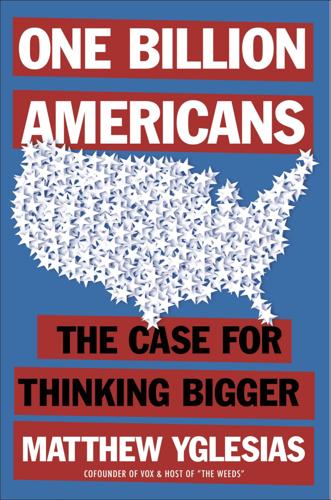
One Billion Americans: The Case for Thinking Bigger
by
Matthew Yglesias
Published 14 Sep 2020
*Argentina, famously, was one of the richest countries in the world at the beginning of World War I, only to stumble into a seemingly endless series of policy errors that have ended with it left in the dust by Japan, Singapore, South Korea, Taiwan, and essentially all of Eastern Europe, to say nothing of the truly rich countries of North America and Western Europe. *Lyman Stone, “American Women Are Having Fewer Children Than They’d Like,” New York Times, February 13, 2018. *See Diane Coyle, GDP: A Brief but Affectionate History (Princeton, NJ: Princeton University Press, 2015), for the development of the economic data we take for granted today. *The standard source is Angus Maddison, Contours of the World Economy, 1–2030 AD: Essays in Macro-Economic History (Oxford: Oxford University Press, 2007), table A.4.
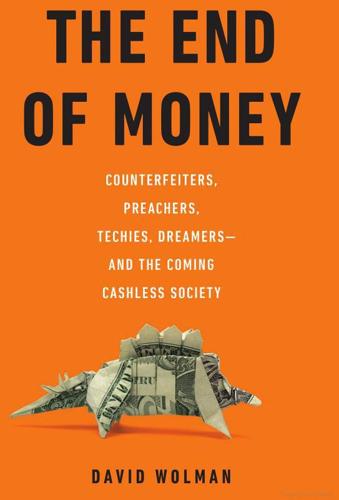
The End of Money: Counterfeiters, Preachers, Techies, Dreamers--And the Coming Cashless Society
by
David Wolman
Published 14 Feb 2012
I would also like to thank the following people for providing assistance with resources, added explanation, logistical support, research guidance, editing, encouragement, and invaluable criticism: Aaron Ernst, Adam Rogers, Aiichiro Kurata, Aimee Geissler, Allen Kupetz, Andrew Steckl, Andy Jordan, Anil Kakani, Anne Marie DiStefano, Anthony Effinger, Astrid Mitchell, Carlson Chambliss, Carol B., Charlotte Webb, Coert Voorhees, Daniel Lowther, David Abrams, David Tidmarsh, Diane Coyle, Einar Baldvin Stefánsson, Erik Jensen, Erik Steiner, Frederick Reimers, Glenn Wood, Greg Lastowka, Hannes van Rensburg, Heather Wax, Heidar Gudjonsson, James Grant, Jan S., Jason Jarrell, Jim Bruene, Jim Rosenberg, Jonathan Carver, Jonathan Lipow, Joshua Davis, Julian Smith, Kabir Kumar, Kakha Bendukidze, Kathleen Vohs, Kiera Butler, Lee Voo van der, Lewis Iadarola, Liana McCabe, Lisa Rutherford, Mark Pickens, Mark Robinson, Marta Peiret, Matt Dill, Matteo Chiampo, Michael Linton, Michael Salmony, Mugdha Bhargava, Neha Mehra, Nick Hughes, Nick McKenzie, Oakley Brooks, Ólafur Ísleifsson, Pallab Mitra, Paul Collins, Paul Makin, Peter Fishman, R.
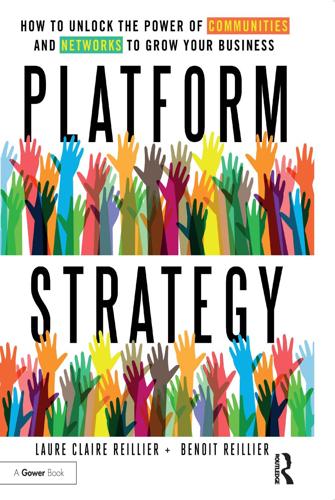
Open for Business Harnessing the Power of Platform Ecosystems
by
Lauren Turner Claire
,
Laure Claire Reillier
and
Benoit Reillier
Published 14 Oct 2017
Platforms, regulation and competition 191 24 See https://uk.finance.yahoo.com/news/smartphone-suit-against-google-plays-101909548. html, 18 July 2014. 25 White Paper: Regulation, the Internet Way: A Data-First Model for Establishing Trust, Safety, and Security, Nick Grossman, 8 April 2015. 26 See A. Stemler, ‘Regulation 2.0: The Marriage of New Governance and Lex Informatica’, Kelley School of Business Research Paper No. 16-25, March 2016. 27 See, for example, ‘The Sharing Economy in the UK’, report commissioned by Airbnb, Diane Coyle, 18 January 2016. Chapter 14 Competing against platforms We have seen how platforms are designed, ignited, scaled-up and defended once mature, but what about traditional businesses facing increased competition and disruptions from platform entrants? How to deal with platform disruption is a question often asked by leaders of large established organizations.
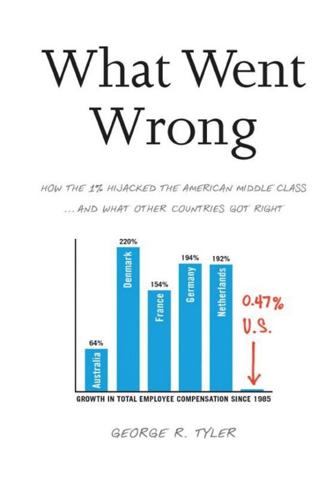
What Went Wrong: How the 1% Hijacked the American Middle Class . . . And What Other Countries Got Right
by
George R. Tyler
Published 15 Jul 2013
This pseudoscientific logic helped assuage any guilt and deflected brickbats from critics such as Mark Twain. During the Reagan era, similar pseudoscientific rationale was provided by the themes of shareholder capitalism, and especially by Ayn Rand. The outcome is that business leaders are constantly driving one another to garner more income. As Diane Coyle, visiting professor at the University of Manchester, wrote: “[The] banking bonus culture validated making a lot of money as a life and career goal…. Remuneration consultants … helped ratchet up the pay and bonus levels throughout the economy.”13 “Too much” became “never enough.” In hindsight, it’s clear that CEOs pursuing their own magnified self-interest within this new environment enabled business leaders to engage in de facto class warfare as they strove to seize a larger share of the gains from growth.
…
Nabil Al-Najjar, Sandeep Baliga, and David Besanko, “Market Forces Meet Behavioral Biases: Cost Misallocation and Irrational Pricing,” Rand Journal of Economics 39, 214–237, 2008. 9 Richard Roll, “The Hubris Hypothesis of Corporate Takeovers,” Journal of Business 59, 197–216, 1986. 10 Mark Armstrong and Steffen Huck, “Behavioral Economics As Applied to Firms: A Primer,” January 2010. 11 Robert Reich, Supercapitalism (New York: Vintage Books/Random House, 2008), 108. 12 David Cay Johnston, Perfectly Legal (New York: Portfolio/Penguin Group, 2003), 240. 13 Diane Coyle, The Economics of Enough: How to Run the Economy As If the Future Matters (Princeton, NJ: Princeton University Press, 2011). 14 Paul K. Piff, Daniel M. Stancata, Stephane Cote, Rodolfo Mendoza-Denton, and Dacher Keltner, “Higher Social Class Predicts Increased Unethical Behavior,” Proceeds of the National Academy of Sciences, February 27, 2012. 15 For example, see: Randall Morck, Andrie Shleifer, and Robert Vishny, “Alternative Mechanisms for Corporate Control,” American Economic Review, 1989, 79:842–852. 16 Ian Austen, “Shake-Up at Canadian Pacific Railway As Activist Investor Takes Control,” New York Times, May 18, 2012. 17 Peter Whoriskey, “The Lake Wobegon Effect Lifts CEO’s Pay,” Washington Post, Oct. 4, 2011, and Ryan Chittum, “Cronyism and Executive Compensation,” The Audit, Columbia Journalism Review, Oct. 4, 2011. 18 Whoriskey, Ibid. 19 Heather Landy, “Executives Took, But the Directors Gave,” New York Times, April 5, 2009. 20 David Cay Johnston, Perfectly Legal, 2003, 250. 21 David Carr, “Why Not Occupy Newsrooms?
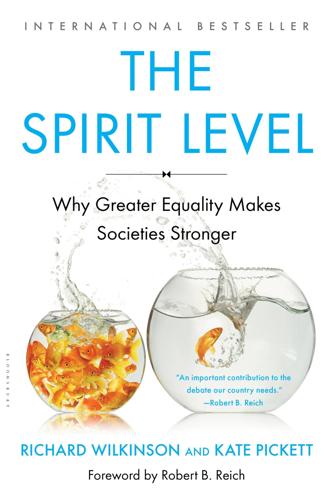
The Spirit Level: Why Greater Equality Makes Societies Stronger
by
Richard Wilkinson
and
Kate Pickett
Published 1 Jan 2009
Hobhouse, who believed that liberty depended, in all its domains, on equality – equality before the law, equality of opportunity, equality of parties to a contract.395 Employee-ownership provides a way of increasing liberty and equality together. RUNNING WITH THE TECHNOLOGICAL TIDE In her book, The Weightless World, Diane Coyle points out that although people in most industrialized countries experienced something like a twentyfold increase in their real incomes during the twentieth century, the weight of all that was produced at the end of the century was roughly the same as it had been at the beginning.396 She also says that the average weight of one dollar’s worth of US exports (adjusted for inflation) fell by a half between 1990 and 1996.
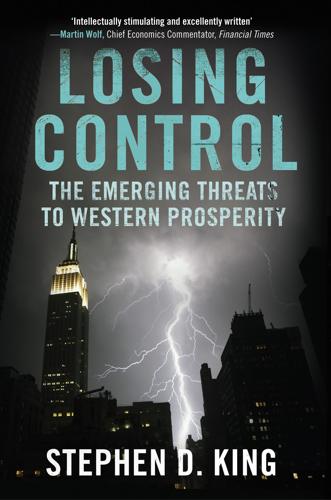
Losing Control: The Emerging Threats to Western Prosperity
by
Stephen D. King
Published 14 Jun 2010
Of particular value have been regular meetings at the Bank for International Settlements in Basel, the Oesterreichische Kontrollbank AG (OeKB) in Vienna and the Accumulation Society in London. I have also benefited from my occasional involvement with the Business Council for Britain. Those who offered encouragement when the book was merely a vague concept include Diane Coyle, Hamish McRae and Martin Wolf. All three know a lot more than I do about writing books and all were kind enough to steer me in the right direction. I am enormously grateful to the people at Yale University Press. Special thanks go to Phoebe Clapham, my editor, who was dogged in her determination to turn my scribblings into a coherent final manuscript.
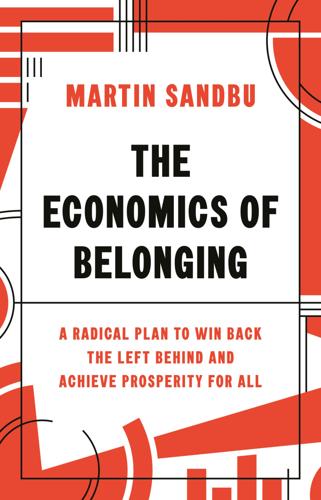
The Economics of Belonging: A Radical Plan to Win Back the Left Behind and Achieve Prosperity for All
by
Martin Sandbu
Published 15 Jun 2020
Among the many people who have over the years given me ideas, information, inspiration, knowledge, feedback, or encouragement are Dimitra Alexopoulou, David Autor, Richard Baldwin, Torsten Bell, Jared Bernstein, Michael Goldfarb, Heather Grabbe, Jason Furman, Arancha Gonzalez, Sandra Kanthal, Joris Luyendijk, Philippe Martin, Branko Milanovic, Karl Ove Moene, Yascha Mounk, Christian Odendahl, Jan Piotrowski, Dani Rodrik, John Springford, Simon Tilford, Kevin O’Rourke, Betsey Stevenson, Arvind Subramanian, Adam Tooze, Karen Helene Ulltveit-Moe, Anne Case, Diane Coyle, Angus Deaton, Swati Dhingra, Ben Friedman, Marcel Fratzscher, David McWilliams, Halvor Mehlum, Adrian Wood, and many, many more. I thank them all and apologise for the many names I have surely left out. First and last comes family. My wife, Ana, has shown admirable tolerance when my attention has been monopolised by the writing.
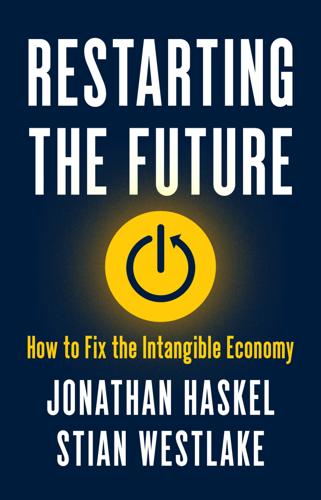
Restarting the Future: How to Fix the Intangible Economy
by
Jonathan Haskel
and
Stian Westlake
Published 4 Apr 2022
FIXING OUR CHANGED ECONOMY 119 4 “The Progress of Science and Useful Arts”: Reforming Public Investment and Intellectual Property 121 5 Financial Architecture: Finance and Monetary Policy in an Intangibles-Rich Economy 148 6 Making Cities Work Better 183 7 Reducing Dysfunctional Competition 211 Conclusion: Restarting the Future 240 Notes 263 References 279 Index 297 FIGURES AND TABLES Figures 1.1 Output per Capita Relative to Prefinancial Crisis Trends 1.2 Tobin’s Q in the United States 1.3 Growth by Income Group in the World, 1980–2016 1.4 Performance Gaps 1.5 Average Global Markup, 2000–2015 1.6 Interest Rates since 1980, Advanced Countries 1.7 Growth in the Frontier Economies since 1300 1.8 Estimated Markups Excluding Cost of Goods Sold (United States, Firms in Compustat) 1.9 US Investment Rates, 1977–2017 1.10 Tangible and Intangible Investment, Major Developed Economies 1.11 Intangible Investment: Actual Growth versus Trend Growth (Trend from 1997–2007) 1.12 Capital Service Growth Trends 2.1 TFP and Intangible Capital Services Growth 2.2 Rates of Return in the United States with and without Intangibles 2.3 Evolution of Concentration (Share of Top Eight Firms) by Intangible Intensity 2.4 Evolution of Productivity Dispersion by Intangible Intensity 3.1 Ambrogio Lorenzetti, The Effects of Good Governance on Siena and Its Territory, Public Palace, Siena 4.1 The Tabarrok Curve 5.1 Yields on Safe Assets and Capital, 1995–2015 5.2 Intangible Intensity and the Return on Capital Spread 6.1 Percentage Intending to Use Increased Home Working as a Permanent Business Model 6.2 Net Percentage Expecting Increased Home Working as Permanent versus Net Percentage Reporting Increased Productivity from Home Working 7.1 Top Eight Industry Concentration since 2002: Share of Top Eight Firms in Industry Sales in Thirteen Developed Countries 7.2 Profit Shares Inside and Outside the United States C.1 Providing Centralised Goods: The Constraint C.2 How Intangibles Affect the Trade-Off Tables 1.1 Sources of per Capita Growth in the Euro Area, the United Kingdom, and the United States 3.1 Conditions Needed for Exchange and Types of Institutions That Support Them 3.2 Exchange and Types of Institutions PREFACE AND ACKNOWLEDGMENTS This book has its origins in the thought-provoking conversations we had after the publication of Capitalism without Capital: The Rise of the Intangible Economy in 2017. We are very grateful for the insightful and generous comments we received from Martin Brassell, Stephen Cecchetti, Tyler Cowen, Diane Coyle, Chris Dillow, Daniel Finkelstein, Martin Fleming, Rana Foroohar, Bill Gates, John Harris, Constance Hunter, Richard Jones, John Kay, William Kerr, Saul Klein, Arnold Kling, Baruch Lev, Yuval Levin, Ehsan Masood, George Molloan, Ataman Ozyilidirim, Robert Peston, Reihan Salam, Michael Saunders, Dan Sichel, David Smith, Tom Sutcliffe, Bart Van Ark, Callum Williams, Martin Wolf, and many others.
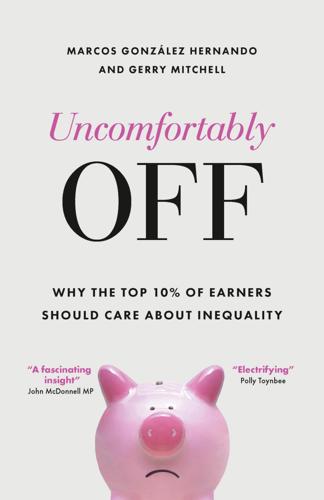
Uncomfortably Off: Why the Top 10% of Earners Should Care About Inequality
by
Marcos González Hernando
and
Gerry Mitchell
Published 23 May 2023
Not having enabled the exorbitantly 144 Jumping ship, but where to? wealthy and having lost the pretence that they will ever join their ranks, they would no longer sustain an economic system based on nepotism, the depletion of natural resources, and debt in place of decent wages. That is, a system, in the words of economist Diane Coyle, ‘directed towards fending off the moment when the unsustainable can’t be sustained any longer’.62 Instead their taxes would provide more investment and infrastructure for highquality public services and a safety net they would not be ashamed of using. There would be more funding for necessary collective changes such as bringing carbon emissions down.
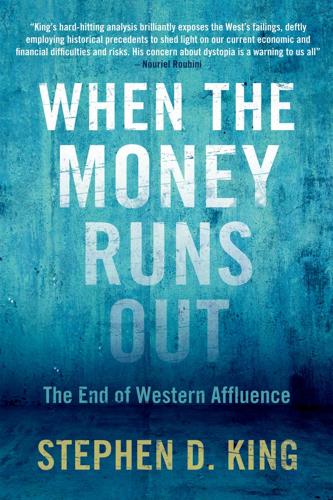
When the Money Runs Out: The End of Western Affluence
by
Stephen D. King
Published 17 Jun 2013
I am particularly grateful to John Llewellyn, Peter Hennessy (or, to give him his full title, Baron Hennessy of Nympsfield), Chris Brown-Humes and Karen Ward for their extraordinary generosity in reading drafts of the entire book, in the process saving me from otherwise inevitable logical or factual embarrassment. Diane Coyle was a source of inspiration when the book was in its planning stages. Later, as she launched her own quest into the usefulness of economics, she encouraged me to think more deeply about the relationship between economics and history (her edited book What's the Use of Economics? is essential reading for anyone wondering how to rebuild the reputation of our profession).

Green and Prosperous Land: A Blueprint for Rescuing the British Countryside
by
Dieter Helm
Published 7 Mar 2019
O. xiv, 97 wind farms 57, 124 wolves 1, 107, 108 woodland 8, 45, 57, 63, 79, 107, 109, 110, 124, 160, 169, 180, 185, 186, 226, 247 woodpigeon 80, 115 World War II (1939–45) xii, 80, 99, 100, 166, 182 Yellowstone National Park 116 Yorkshire Moors 120 ACKNOWLEDGEMENTS This is my own take on the prize of a green and prosperous land and how to get there, and not that of the NCC or of its individual members. In writing this book, I have been greatly influenced by my fellow NCC colleagues: Melanie Austen, Ian Bateman, Christopher Collins, Diane Coyle, Paul Leinster, Georgina Mace, Colin Mayer and Kathy Willis. Henry Dieudonné-Demaria leads the secretariat to great effect, ably supported by Maja Kent and Vladimir Novatchev. Nick Barter and Julian Harlow drafted the 25 Year Environment Plan, and both have helped me enormously. Between them they have made a major impact on Britain’s environmental policies, in the best traditions of the civil service.
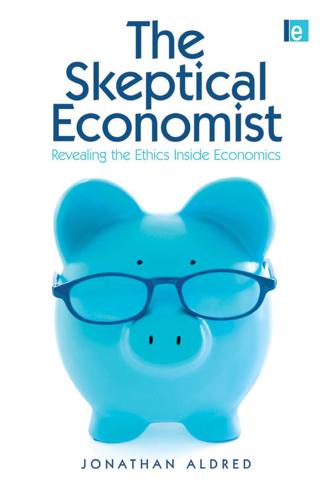
The Skeptical Economist: Revealing the Ethics Inside Economics
by
Jonathan Aldred
Published 1 Jan 2009
We just have to accept on trust the ‘inescapable economic logic’, or similar threatening phrase, which leads to a particular conclusion, however unpalatable. Black box economics is not just the creation of policy entrepreneurs. Serious economists who make a virtue of their political neutrality can also unintentionally reinforce the black box image, because of their astonishing arrogance. For instance, Diane Coyle, formerly of The Independent, concludes her book with ‘ten rules of economic thinking’, one of which is ‘where common sense and economics conflict, common sense is wrong’.3 This imperious tone does not encourage people to embrace the wisdom of economists. People feel they are being told what to think, rather than encouraged to understand.
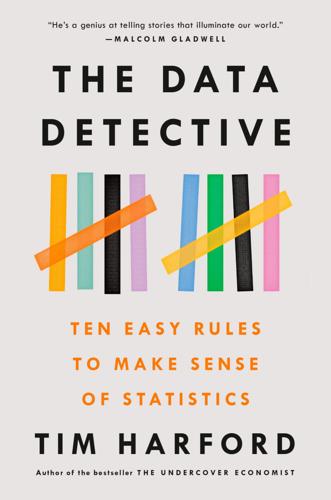
The Data Detective: Ten Easy Rules to Make Sense of Statistics
by
Tim Harford
Published 2 Feb 2021
For discussion and the full Trump tweets, see Matthew Yglesias, “Trump Just Tweeted That ‘Crime in Germany Is Way Up.’ It’s Actually at Its Lowest Level Since 1992,” Vox, June 18, 2018; and Christopher F. Schuetze and Michael Wolgelenter, “Fact Check: Trump’s False and Misleading Claims about Germany’s Crime and Immigration,” New York Times, June 18, 2018. 15. Diane Coyle, GDP: A Brief but Affectionate History (Princeton, NJ: Princeton University Press, 2014), 3–4. 16. European Commission, Report on Greek Government Deficit and Debt Statistics, January 2010, https://ec.europa.eu/eurostat/documents/4187653/6404656/COM_2010_report_greek/c8523cfa-d3c1-4954-8ea1-64bb11e59b3a. 17.

Exponential: How Accelerating Technology Is Leaving Us Behind and What to Do About It
by
Azeem Azhar
Published 6 Sep 2021
Beyond this, many others have helped, perhaps unknowingly, through their discussions with me, including Rumman Chowdhury, Bill Janeway, Anders Wijkman, Marko Ahtisaari, Toomas Hendrik Ilves, David Kausman, Alexandra Mousavizadeh, Mark Evans, Martin Tisné, Stephanie Hare, Reid Hoffman, Tom Loosemore, Celine Herweijer, Dan Elrond, Nicolaus Hencke, Ivan Ostojic, Diana Foltean, Ray Eitel Porter, Barney Pell, Elisabeth Ling, Raj Jena, Manar Hussain, Christopher Mims, Benedict Evans, Nick Russell, Nat Bullard, Matthew Stoller, John Battelle, Velimir Gašparović, Farhan Lalji, James Wang, Salim Ismail, Yuri van Geest, Salman Malik, Tom Kelley, Simon Daniel, Gerd Leonhard, Rob McCargow, David Galbraith, Tabitha Goldstaub, David Giampaolo, Ed Vaizey, Paul Nemitz, Wendy Hall, Tim Gardam, Mayra Valderama, Adrian Weller, Eleanor O’Keeffe, Tom Standage, Jerry Li, Reema Patel, Jeni Tennison, Nigel Shadbolt, Blair Sheppard, Horace Dediu, Ramez Naam, Diane Coyle, Nicolas Colin, Christian Printzell Halvorsen, Terje Seljeseth and Brett Frischmann. Many investors, over the decades, helped me understand the market, including Leila Zenga, Chrys Chrysanthou, Russell Buckley, Liz Broderick, Albert Wenger, Saul Klein, Reshma Sohoni, Hussein Kanji, Sean Park, Ciaran O’Leary, Jason Whitmire, Christian Hernandez, Eileen Tso, Yann Ranchere, Ash Fontana and Jim Pallotta.
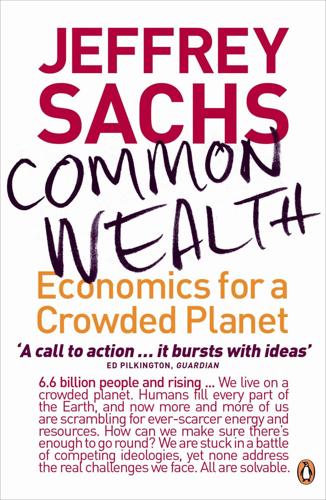
Common Wealth: Economics for a Crowded Planet
by
Jeffrey Sachs
Published 1 Jan 2008
The result is a truly inspirational book’ Robert Matthews, BBC Focus ‘Never has the challenge of saving the world felt as simple’ Edmund Conway, Daily Telegraph ‘Lively, provocative and readable … will make the world a better place’ Tim Congdon, Spectator ‘Genuinely impressive … Sachs stands in the great tradition of campaigning intellectuals and has been an effective advocate of urgent policy action’ Diane Coyle, Independent ‘A manifesto for securing a bright future for Earth’ Michael Sargent, Nature ‘Packed with statistics and carefully worded arguments’ Economist ‘A vital read … Common Wealth is full of big ideas and is written by a star in the constellation of gurus … a serious book that deserves to be widely read and debated’ Management Today ‘One of America’s most prominent economists’ Noel Malcolm, Sunday Telegraph ‘Common Wealth explains the most basic economic reckoning that the world faces … Despite the rearguard opposition of some vested interests, policies to help the world’s poor and the global environment are in fact the very best economic bargains on the planet’ Al Gore ABOUT THE AUTHOR Jeffrey D.
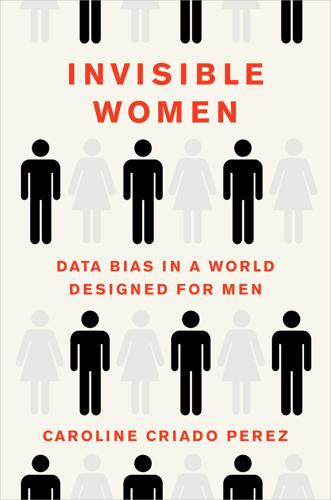
Invisible Women
by
Caroline Criado Perez
Published 12 Mar 2019
It is compiled from data collected in a range of surveys and represents the total value of goods (how many shoes were manufactured) and services (how many meals were served at restaurants) a country produces. It also includes how much we all got paid and how much we (including governments and businesses) have all spent. It all sounds very scientific, but the truth is that GDP has a woman problem. The formulation of a country’s official GDP figure is an inherently subjective process, explains Diane Coyle, professor of economics at Manchester University. ‘A lot of people think that [GDP] is a real thing. But actually, it’s a confection, with lots of judgments that have gone into its definition. And a lot of uncertainty.’ Measuring GDP is, she says, ‘not like measuring how high the mountain is’. When you see headlines proclaiming that ‘GDP went up 0.3% this quarter’, she cautions, you should remember that that 0.3% ‘is dwarfed by the amount of uncertainty in the figures’.

Greater: Britain After the Storm
by
Penny Mordaunt
and
Chris Lewis
Published 19 May 2021
The main criticism of the Green Book of late is that it does not give enough weight to rebalancing or ‘levelling up’ regional economies. The rules are blunt and too rigid and there is in-built bias in favour of wealthier areas receiving more infrastructure. In their paper ‘The Imperial Treasury: appraisal methodology and regional economic performance in the UK’, Diane Coyle and Marianne Sensier proposed: ‘Infrastructure investments also need to be based on a strategic view about economic development for the whole of the UK.’20 Civil Service World is a notable media outlet. In a piece entitled ‘Is Whitehall’s obsession with business cases getting in the way of delivery?’
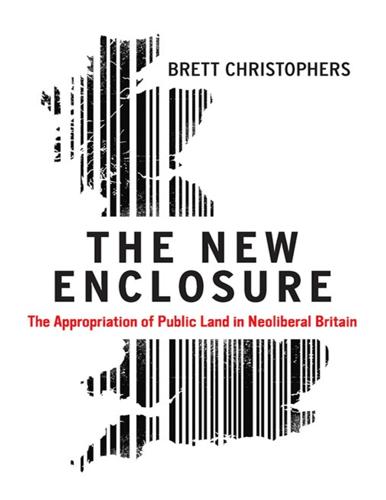
The New Enclosure: The Appropriation of Public Land in Neoliberal Britain
by
Brett Christophers
Published 6 Nov 2018
He judged that such disposal appeared to be ‘based on ideological prejudice’.2 Much more recently, looking back specifically to Thatcher’s (and Cox’s) 1980s, Michael Rosen concurred: ‘Behind these sell-offs was an ideology. The Tories then as now thought public property, funded publicly, used by the public, bred Labour voters’.3 Also recently, the economist Diane Coyle remarked that in Britain ‘the belief the public sector should own as little as possible’ – of land, but also, one imagines, of everything else – is essentially ‘an article of faith’.4 She is right; and so too, surely, was Cox. CHAPTER 4 Carrots and Sticks: Privatizing the Land In a liberal democracy such as the United Kingdom, making a series of arguments in support of a major policy initiative – which the privatization of public land, for nearly forty years now, has undoubtedly been – is typically necessary to the achievement of that initiative; but it is by no means sufficient.
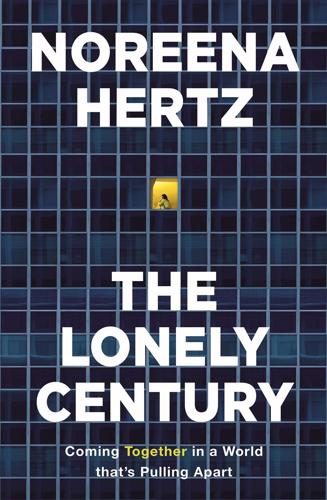
The Lonely Century: How Isolation Imperils Our Future
by
Noreena Hertz
Published 13 May 2020
Wellbeing is more telling’, Guardian, 10 June 2019, https://www.theguardian.com/commentisfree/2019/jun/10/uk-obsessing-gdp-wellbeing-new-zealand; for more on the legacy of the Sarkozy Commission, see Paul Allin and David J. Hand, The Wellbeing of Nations: Meaning, Motive, and Measurement (New York: Wiley, 2014). 20 Noreena Hertz, The Silent Takeover (Random House, 2002), 17–20. 21 See here too Diane Coyle’s work in this area, e.g., GDP: A Brief But Affectionate History (Princeton University Press, 2014). 22 ‘Business Roundtable Members’, Business Roundtable, https://www.businessroundtable.org/about-us/members. 23 Milton Friedman, ‘The Social Responsibility of Business is to Increase Its Profits,’ New York Times magazine, 13 September 1970. 24 ‘Business Roundtable Redefines the Purpose of a Corporation to Promote “An Economy That Serves All Americans”’, Business Roundtable, 19 August 2019, https://www.businessroundtable.org/business-roundtable-redefines-the-purpose-of-a-corporation-to-promote-an-economy-that-serves-all-americans. 25 Julia Carrie Wong, ‘Amazon execs labeled fired worker “not smart or articulate” in leaked PR notes’, Guardian, 3 April 2020, https://www.theguardian.com/technology/2020/apr/02/amazon-chris-smalls-smart-articulate-leaked-memo. 26 Chris Smalls, ‘Dear Jeff Bezos, instead of firing me, protect your workers from coronavirus’, Guardian, 2 April 2020, https://www.theguardian.com/commentisfree/2020/apr/02/dear-jeff-bezos-amazon-instead-of-firing-me-protect-your-workers-from-coronavirus. 27 Julia Carrie Wong, ‘Amazon execs labeled fired worker “not smart or articulate” in leaked PR notes’. 28 ‘AG James’ Statement on Firing of Amazon Worker Who Organized Walkout’, Office of the New York State Attorney General, https://ag.ny.gov/press-release/2020/ag-james-statement-firing-amazon-worker-who-organized-walkout. 29 Brad Smith, ‘As we work to protect public health, we also need to protect the income of hourly workers who support our campus’, Microsoft, 5 March 2020, https://blogs.microsoft.com/on-the-issues/2020/03/05/covid-19-microsoft-hourly-workers/. 30 See for example Republican Senator Josh Hawley’s bill in July 2019 to curb smartphone addiction by banning the ‘infinite scroll’ of social media feeds, and limiting an individual’s social media usage to thirty minutes a day across all devices, Emily Stewart, ‘Josh Hawley’s bill to limit your Twitter time to 30 minutes a day, explained’, Vox, 31 July 2019, https://www.vox.com/recode/2019/7/31/20748732/josh-hawley-smart-act-social-media-addiction); or EU industry chief Thierry Breton’s warnings in February 2020 that should major tech platforms fail to adequately curb hate speech and disinformation, tougher rules and penalties would be forthcoming (‘EU threatens tougher hate-speech rules after Facebook meeting’, DW, 17 February 2020, https://www.dw.com/en/eu-threatens-tougher-hate-speech-rules-after-facebook-meeting/a-52410851). 31 ‘Camden Council tackles the climate crisis’, see video at: https://youtu.be/JzzWc5wMQ6s.
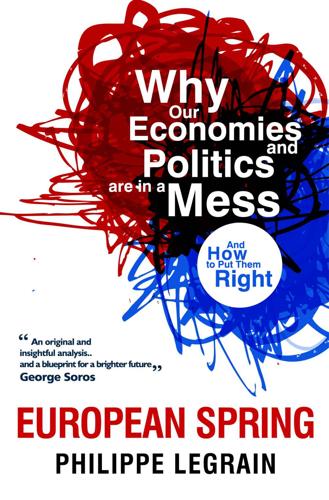
European Spring: Why Our Economies and Politics Are in a Mess - and How to Put Them Right
by
Philippe Legrain
Published 22 Apr 2014
Thank you to Frédéric Michel for his kindness and support over the years and for introducing me to so many interesting people. Thank you to Peter Mandelson, Ben Wegg Prosser (a very old friend), Stephen Adams and everyone at Global Counsel. David Bowers and Dominic White at Absolute Strategy Research are always insightful and David has been particularly kind; thank you to Beth McCann for introducing us. Diane Coyle at Enlightenment Economics is lovely. Varun Chandra has been very kind. I have had many stimulating conversations with Gene Frieda at Moore Capital Management. Among bank economists, Stephen King at HSBC, Willem Buiter at Citi, Erik Nielsen at Unicredit and George Magnus, formerly of UBS, stand out.
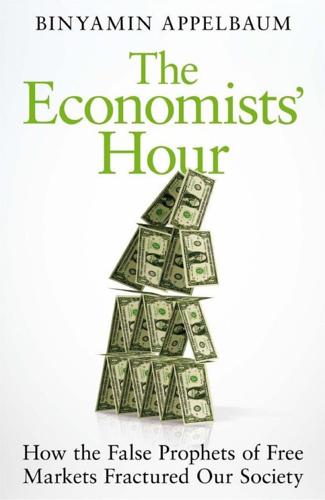
The Economists' Hour: How the False Prophets of Free Markets Fractured Our Society
by
Binyamin Appelbaum
Published 4 Sep 2019
It found a wide audience after the New York newspaper editor Horace Greeley bankrolled a second edition, in part to rebut an 1858 speech by the South Carolina politician James Henry Hammond, titled “Cotton Is King,” in which he presented data purporting to show the superior productivity of the southern economy. By the time of the Civil War, more than 200,000 copies of Helper’s book had been sold. De Bow’s contribution was ironic; he was an ardent proponent of both slavery and secession. See Cook, The Pricing of Progress. 25. Diane Coyle, GDP: A Brief but Affectionate History (Princeton, N.J.: Princeton University Press, 2014), 13. 26. Arnold Harberger, “Sense and Economics: An Oral History with Arnold Harberger,” conducted by Paul Burnett in 2015 and 2016, Oral History Center, Bancroft Library, University of California, Berkeley. 27.
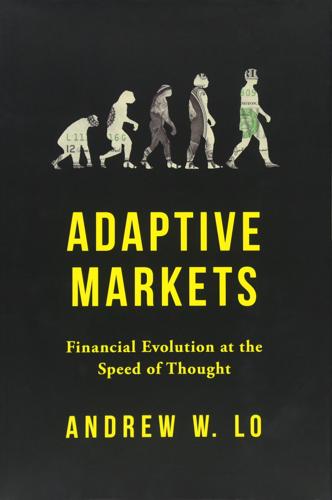
Adaptive Markets: Financial Evolution at the Speed of Thought
by
Andrew W. Lo
Published 3 Apr 2017
My first exposure to continuous-time econometrics was as his research assistant, and I have very fond memories of sitting side by side with Jerry in the basement of the Harvard Science Center debugging Fortran code for estimating the parameters of a Brownian motion with an absorbing barrier. And I benefited greatly from the advice, guidance, and inspiration of many other faculty and students during this period, including Dick Caves, Diane Coyle, Ben Friedman, Dale Jorgenson, Nobu Kiyotaki, Whitney Newey, Pat Newport, the late David Pickard, Tom Sargent, Mike Spence, Phil Vasan, and Mark Watson—it’s only through the passage of time that I’ve come to realize just how much impact they had on me. But my biggest single intellectual debt during this time was to Bob Merton, to whom I owe my career in academic finance.